Voices from thefrontlines
Climate change is reshaping our world and exposing Africans, across the continent, to increased hardship. How can its people be empowered to face climate shocks and stressors and make informed decisions to move or stay now and in the future?
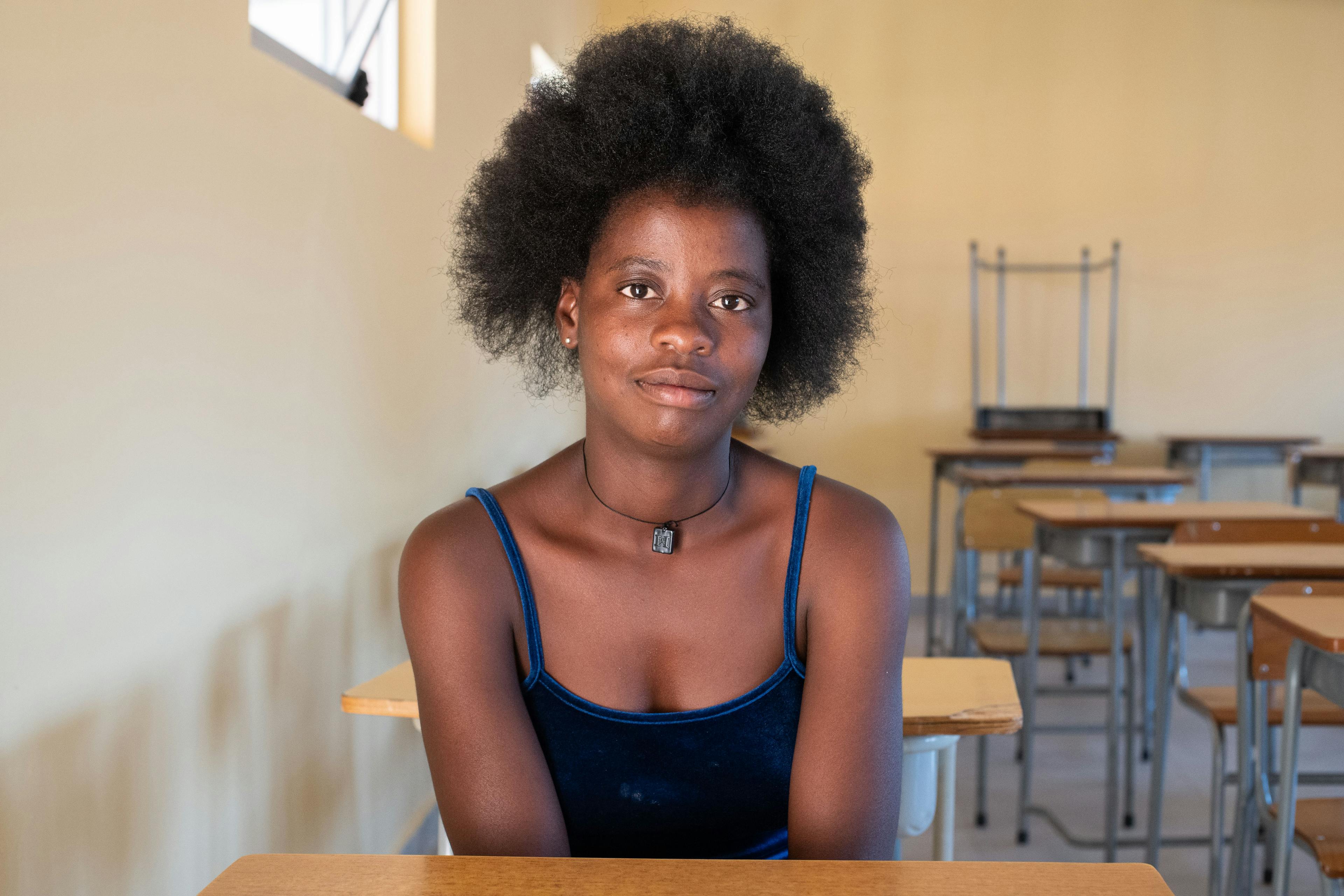
Voices from the FrontlinesGallery
Voices from the FrontlinesGallery
This visual introduction to contemporary African life examines the effects of the climate crisis on people’s lives and how it influences their decisions to move.
Introduction
The gallery portrays the impacts of climate change and climate mobility in Africa and in the everyday lives of Africans. It ties local, personal stories to continent-wide challenges brought on by climate disruptions, in an effort to trace how both interact to shape climate mobility decisions and future trends.
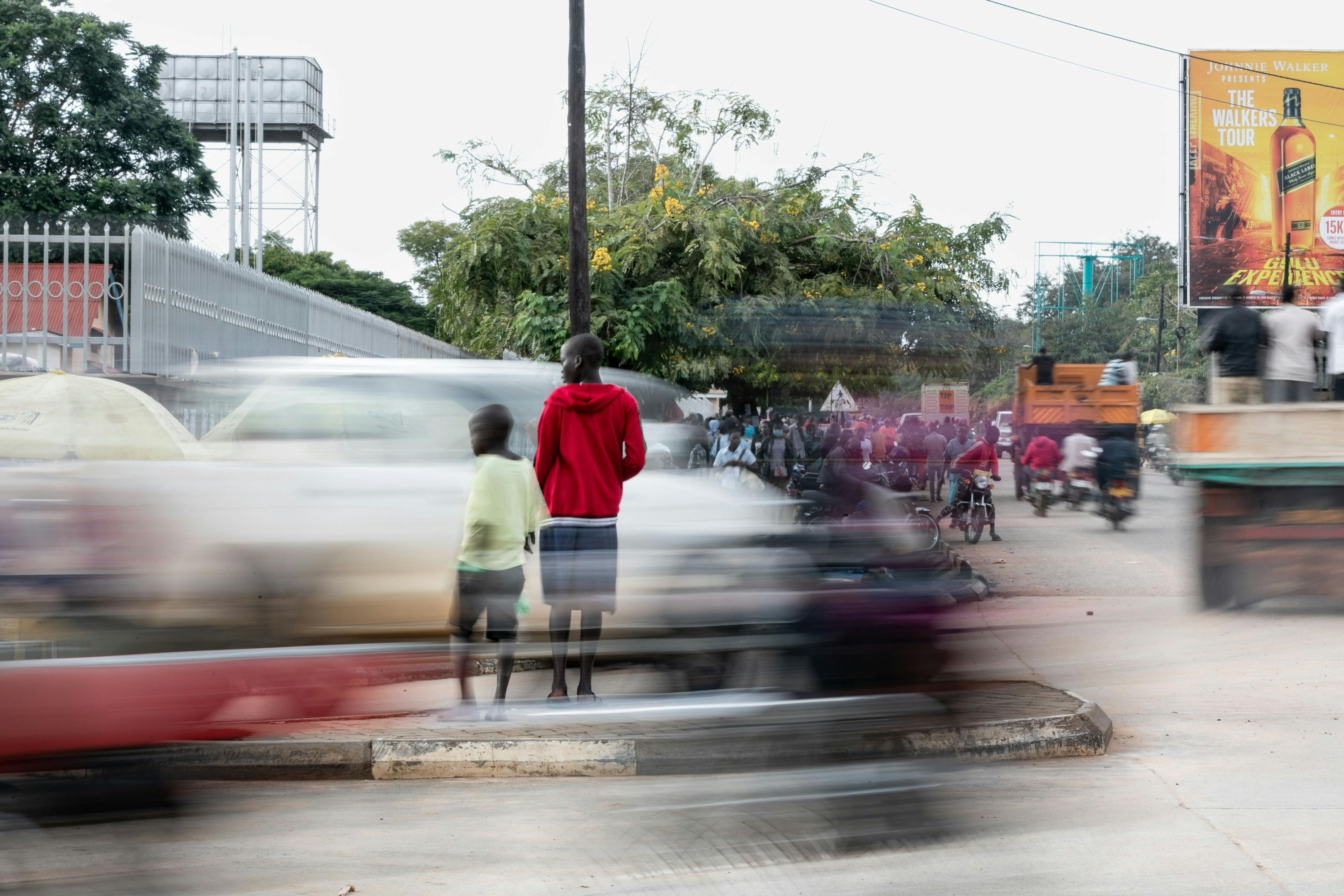
Downtown Arua, Uganda
Boom towns: people moving to, within, and between cities. African cities draw people who seek new prospects and hope for better life: access to jobs, healthcare, education, services, and culture. By 2050, 60 percent of Africans will be city-dwellers. Climate disruptions will accelerate rural-urban migration into smaller cities like Arua.
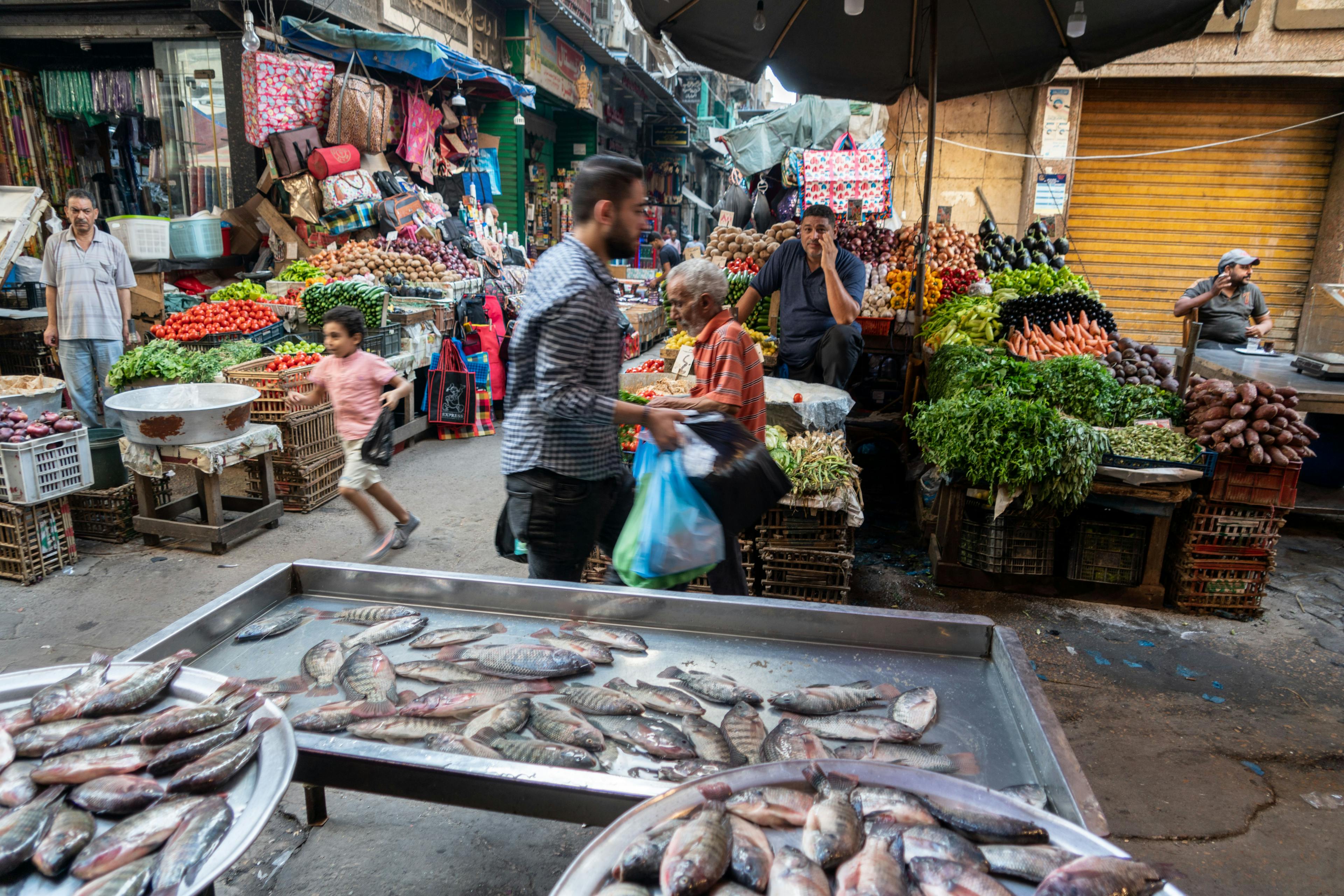
El-Manshia Market, Alexandria, Egypt
Change is coming. This popular downtown market bustles with the vibrancy that makes cities attractive. Climate change will add to rural-urban trends, changing the face of cities, and putting pressure on their food system, service delivery and infrastructure. Cities must anticipate and play for this.
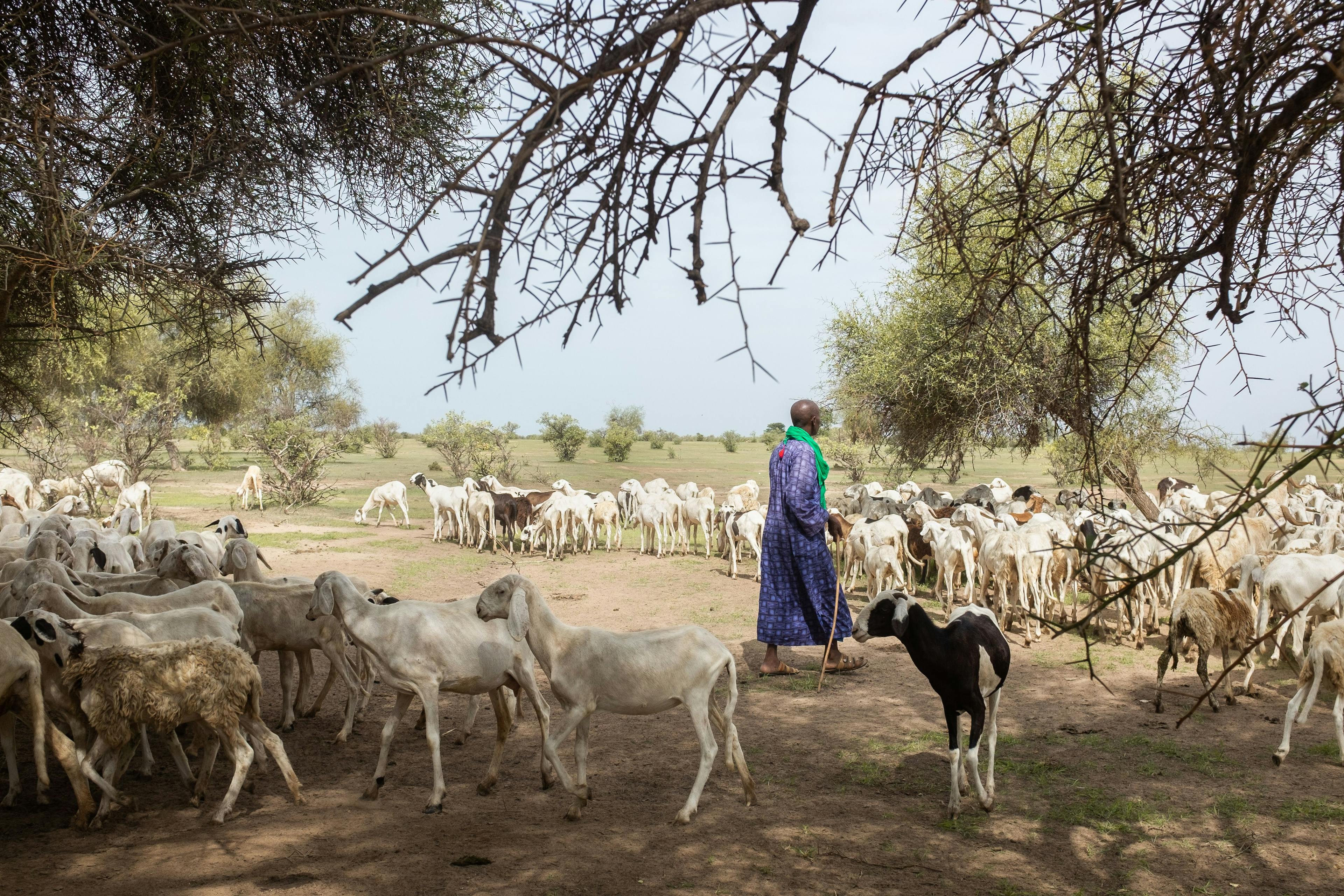
Feteh Doundou settlement, Tatki District, Senegal
Ancient ways, uncertain times: changing pastoralism. Pastoralists like Fulani shepherd Samba Ly (62) have a long tradition of protecting and creating value from fragile dryland systems. Extreme drought is forcing many traditionally nomadic herders to relocate, or partly settle and grow crops. Others look for work outside of farming.
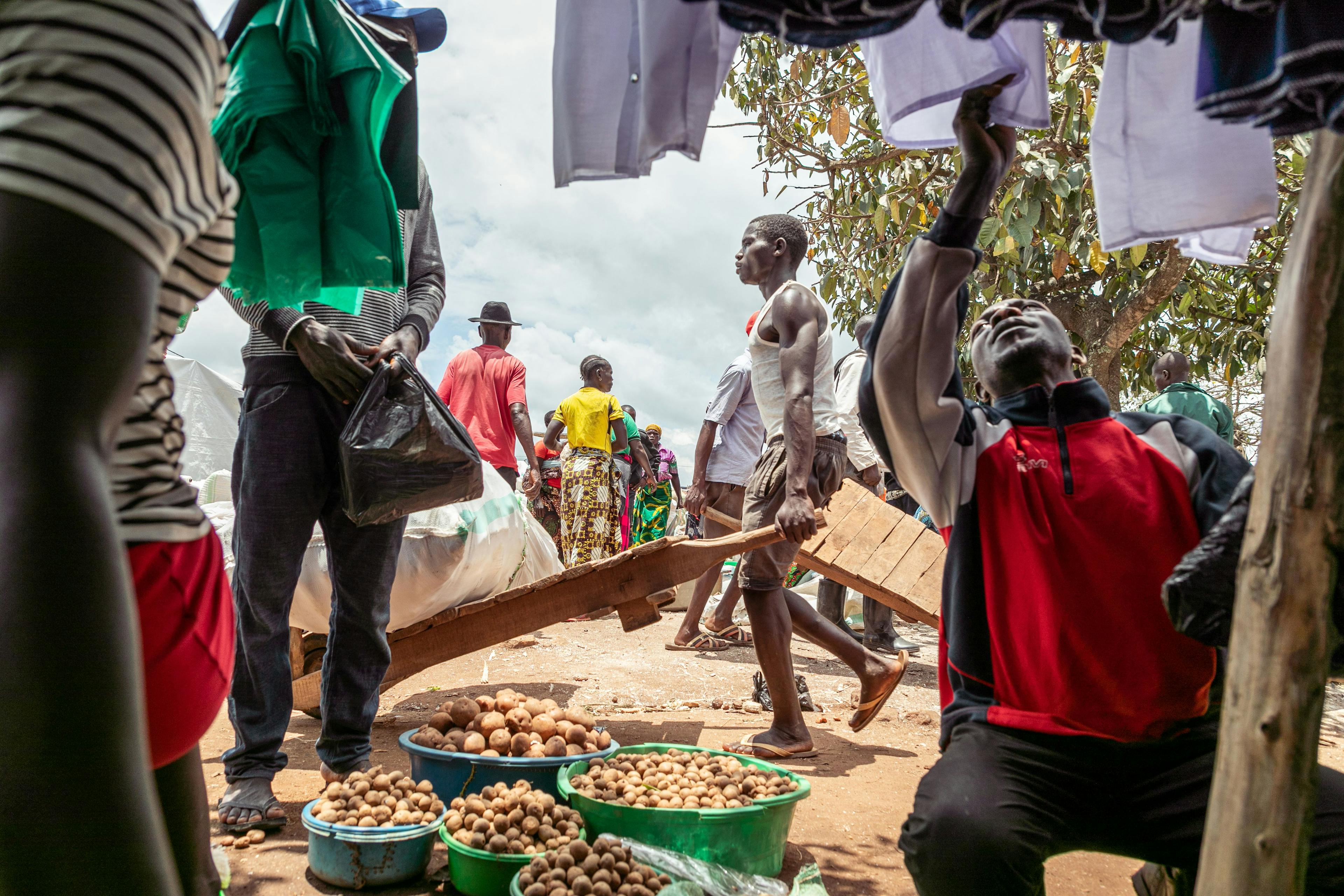
Kampala Market, near Arua, Ugandan-DRC border
Busy borders: border-area ties, trade and travel. Some border areas will see hotspots of movement in response to climate disruption. The right connecting infrastructure and services for border cities like Arua can harness the ties that come with migration. This can boost trade, build value chains, and grow local economies.
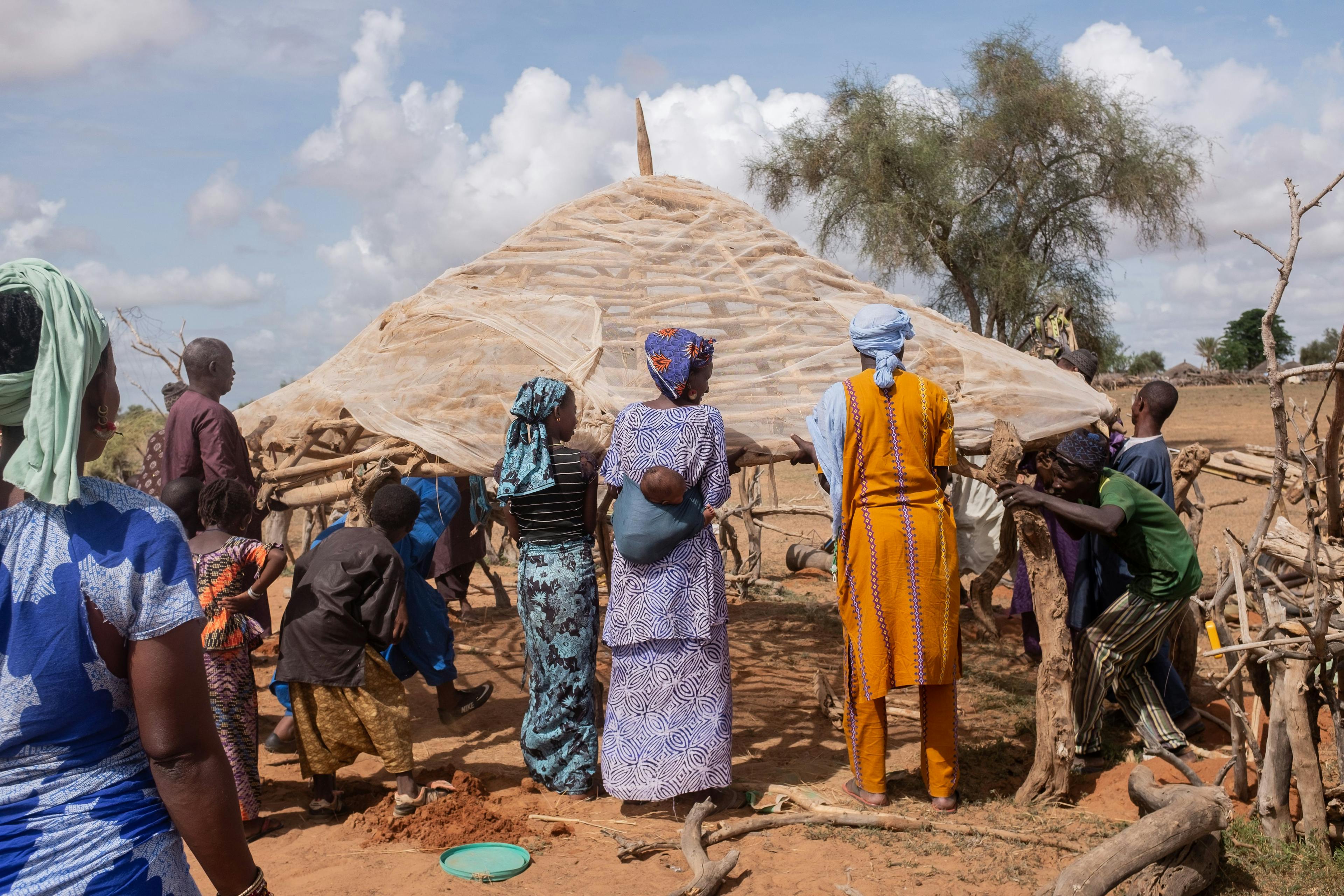
Feteh Doundou settlement, Tatki District, Senegal
Deep roots: Africans’ connection with land, culture, community. Most Africans want to stay in their home communities in spite of climate disruptions. Pastoralists like the Fulani treasure their culture and traditions. Climate impacts are testing this way of life, as drought and heat threaten their ability to farm as they have for generations.
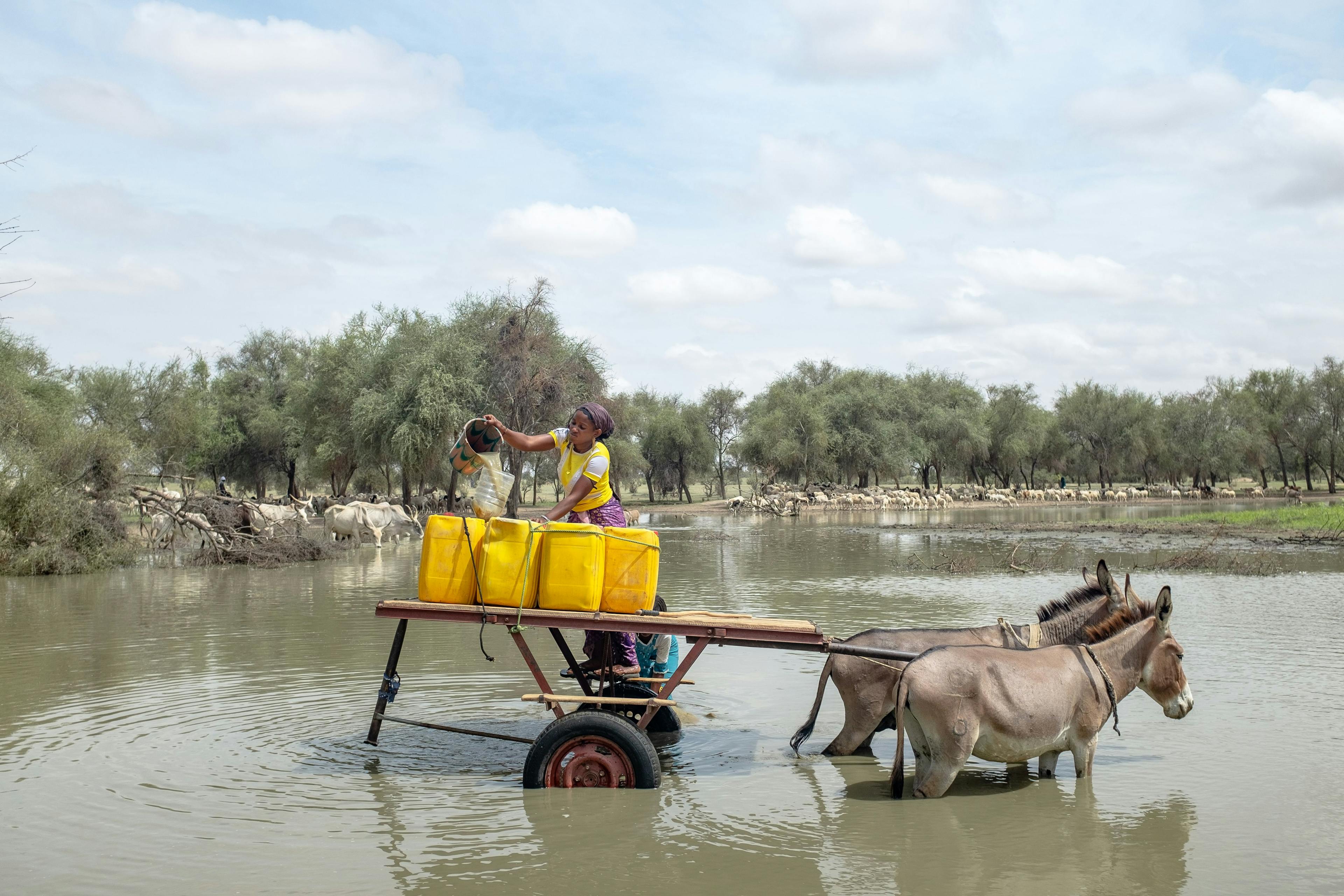
Feteh Doundou settlement, Tatki District, Senegal
Women’s work: a heavier burden. When climate disruptions drive farmers to move, this often splits families. Women are less likely to migrate, and face additional burdens when they stay behind. Here, a Fulani woman tends to her domestic duties — fetching the family’s water — while the men herd the flocks.
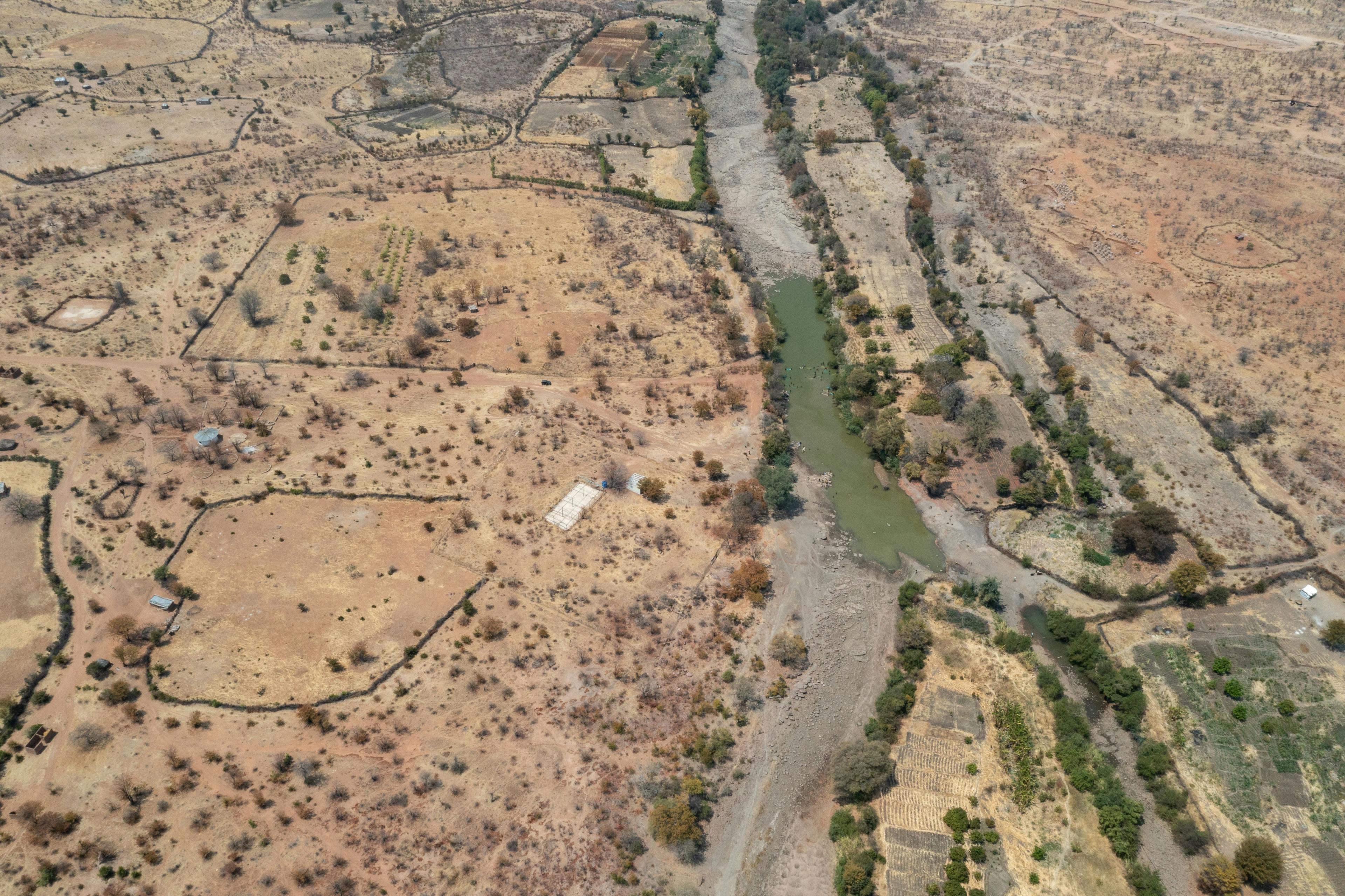
Caculuvar River, Cahama, Angola
Waiting for the rains: the new face of rain-fed farming. Agriculture underpins Africa’s economies as many people’s livelihoods depend on access to land and water. Climate impacts on rain-fed farming are driving rural-to-town mobility, with farmers traveling in search of off-farm work when the rains are poor and crop yields down.
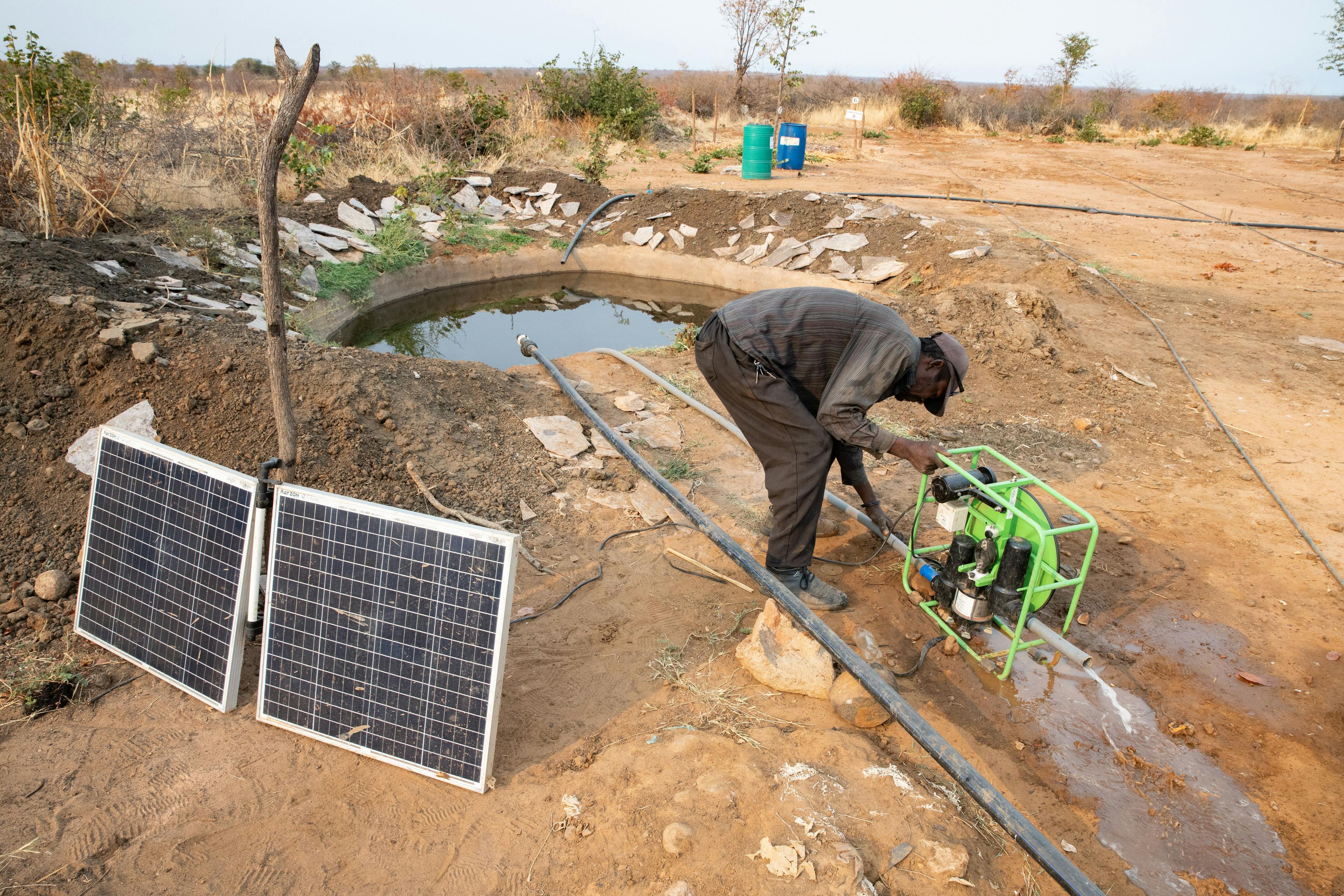
Escola da Salvação Agricultural Farm, Cahama Outskirts, Angola
Land and water: the pull of productive farmlands. Changes to the available water and fertile soil will re-draw Africa’s farming areas. Smallholder farmers already use mobility to cope with unexpected weather events and climate stressors. More people are predicted to move in future, mainly over short distances and within countries.
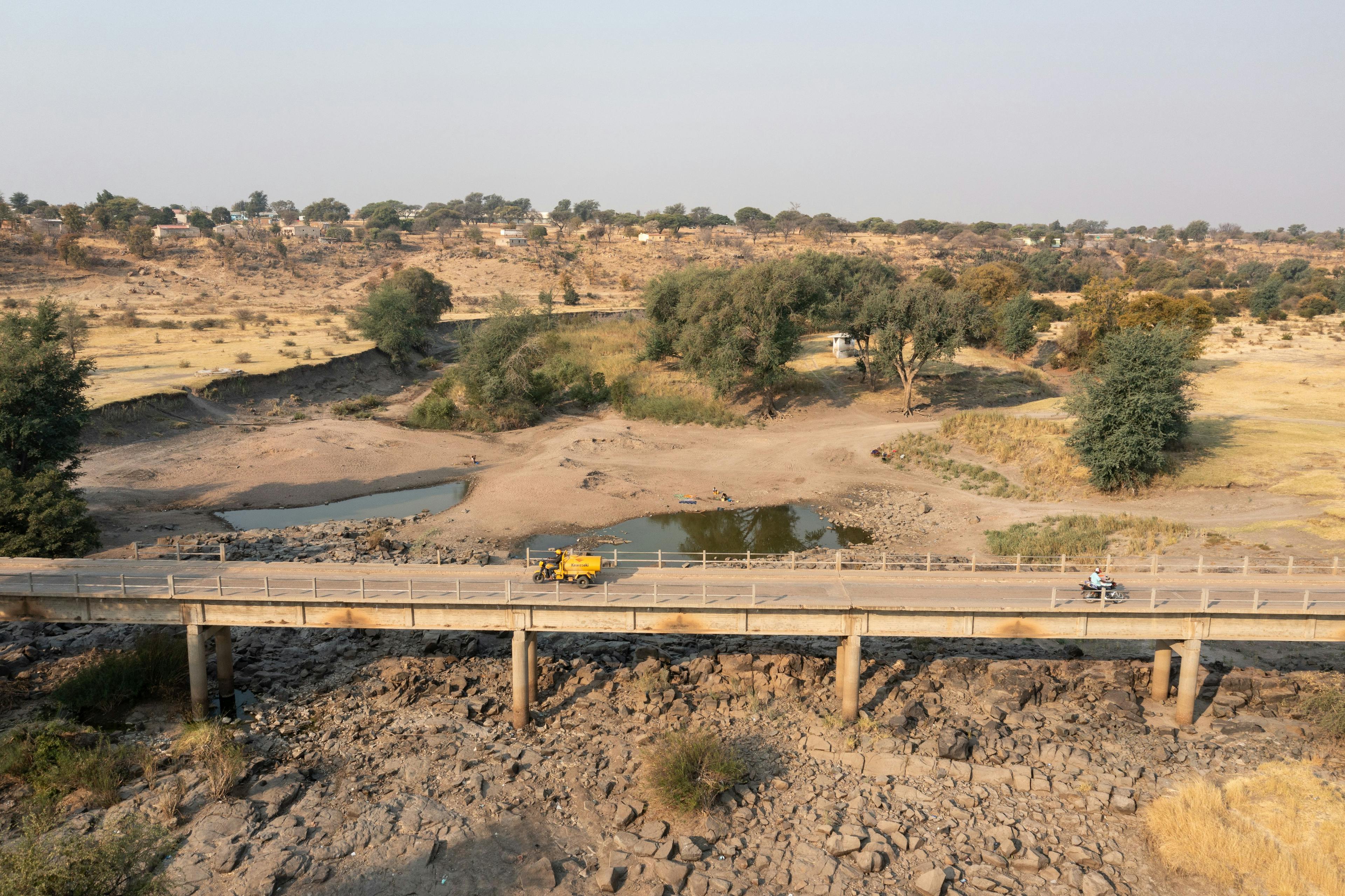
Caculuvar River, Cahama, Angola
Unequal burden: Africa is a small emitter, but is hard hit. Even with radical emission reduction efforts, further global heating is unavoidable. Africa cannot decarbonise much, but faces large-scale loss and damage from climate change. Development that supports adaptation and includes planning for climate mobility will give better protection.
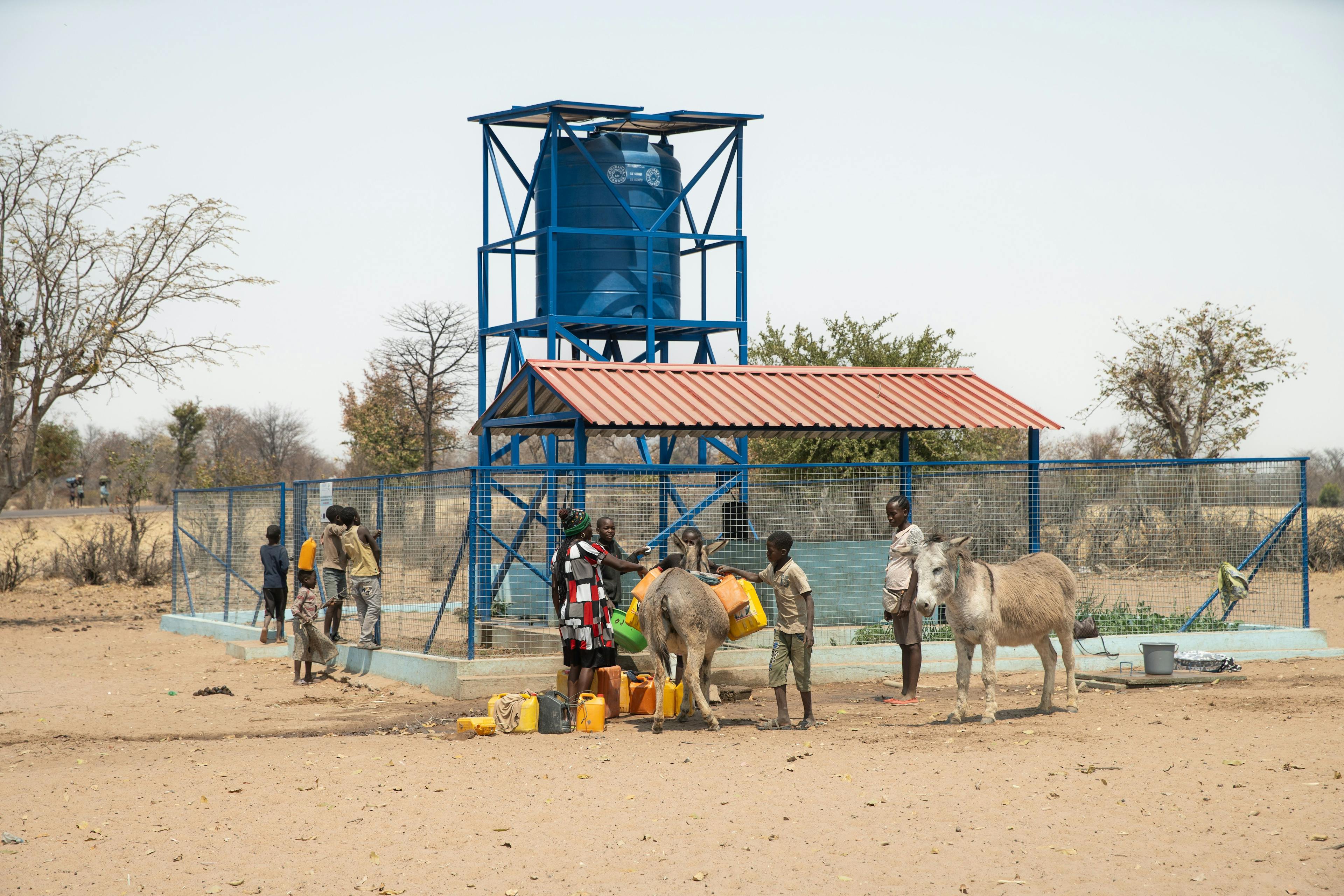
Cahama, Angola
Working together: water, land, nature, people. Africa’s farming and food production are bound to its ecosystems. Climate mobility will create opportunities for cooperation and joint stewardship of shared water, land, natural, and human capital. Joint management of natural resources with communities can foster social cohesion.
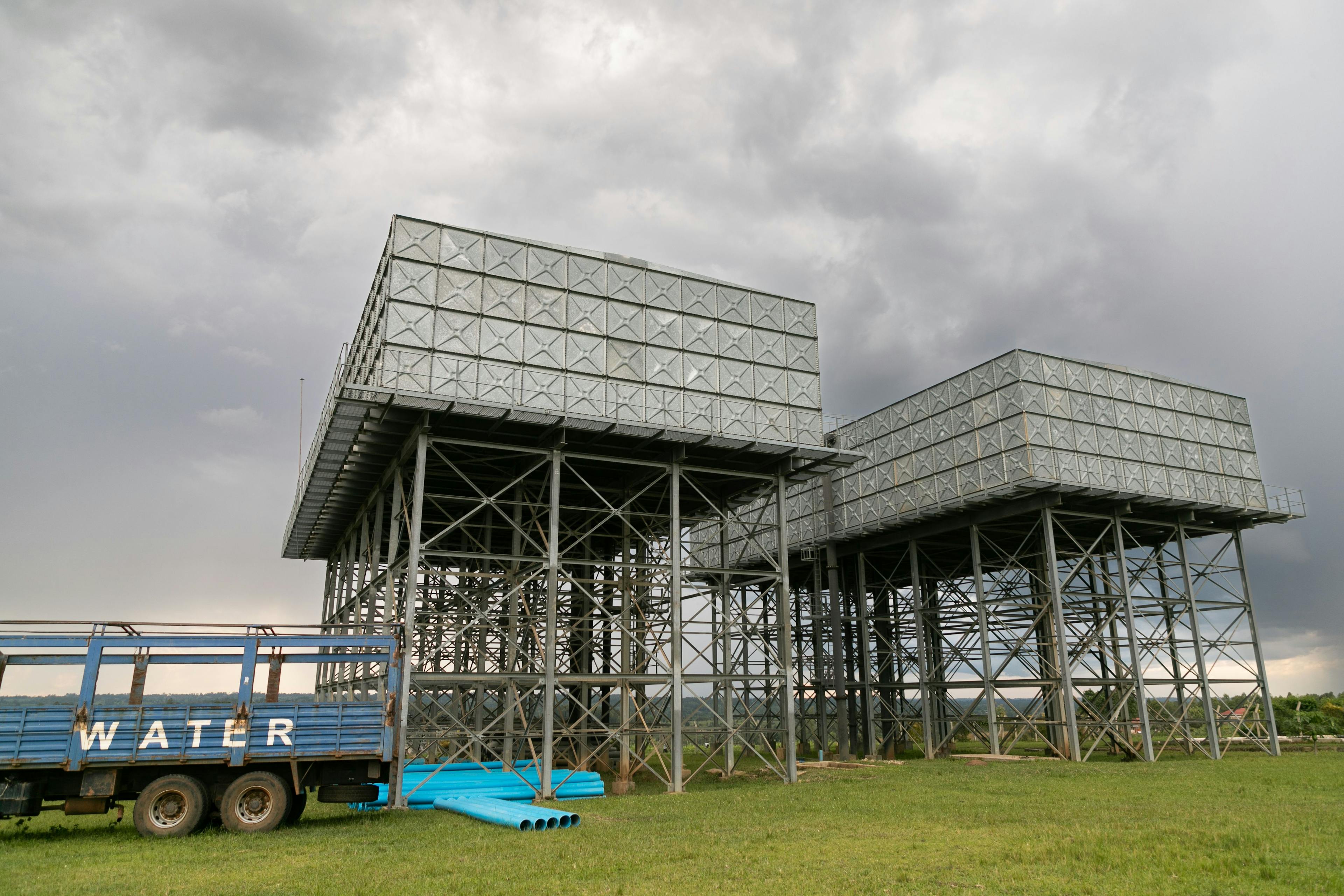
Giligili Reservoir, Arua outskirts, Uganda
On the edge: ensuring border areas are not left behind. Far from national capitals, border areas are often on the edge of the ‘social contract’, with limited government presence and service delivery. Local and cooperative cross-border development planning and management of natural resources can help prepare for growing climate mobility.
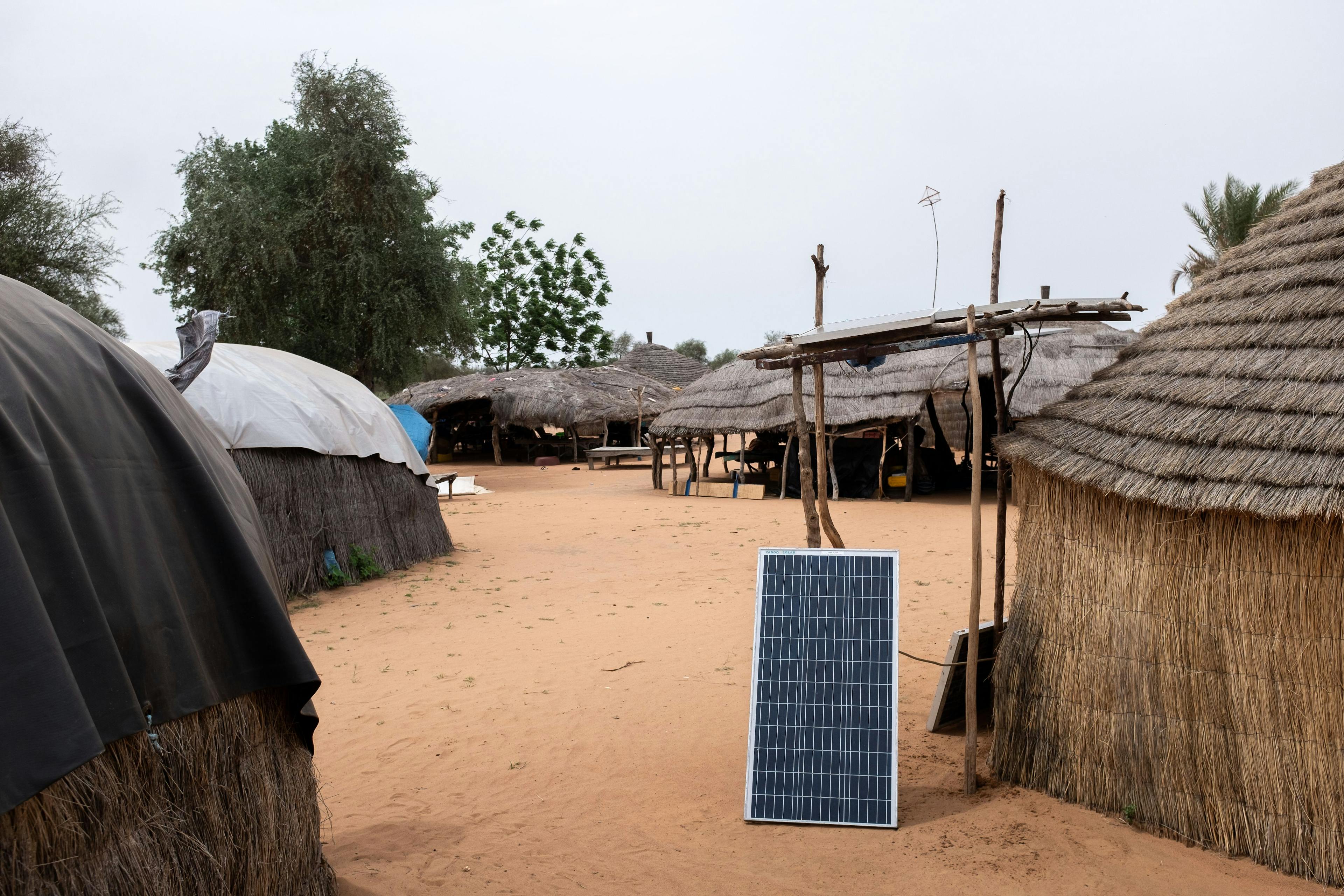
Feteh Doundou Settlement, Senegal
In with the new: Pastoralists are changing their ways. Dryland herders are changing their lifestyles in response to climate shifts, including using new technologies. Solar panels allow some herders to charge appliances such as phones and radios which they also use to adapt to changing conditions.
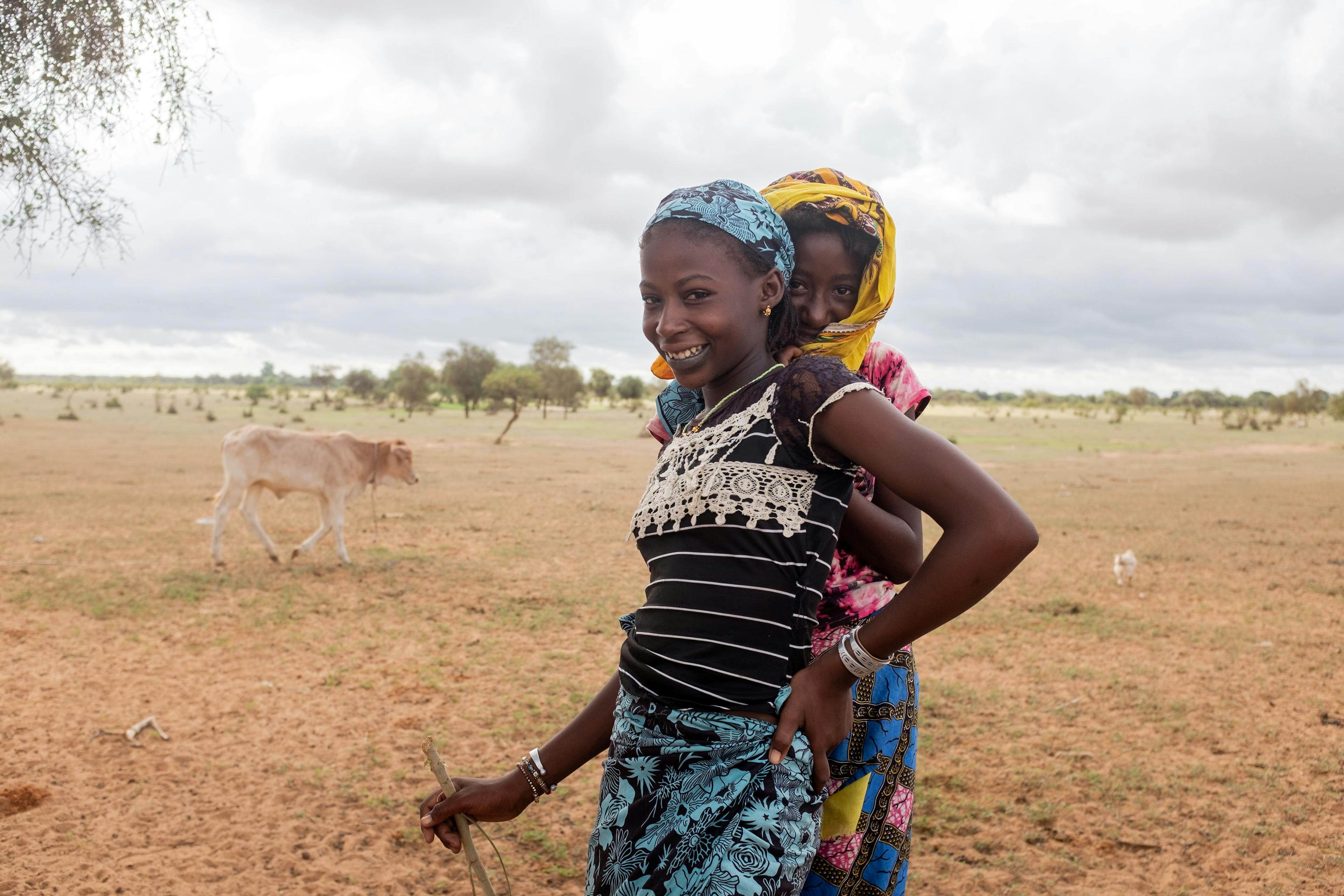
Tatki District, Senegal
At risk but agile: women innovate to cope with hardships. Women are often poorer and more at risk than men, and often less well informed about climate issues. But, like these Fulani women, they are quick to draw on adaptation solutions and social networks, particularly when given accessible climate information.
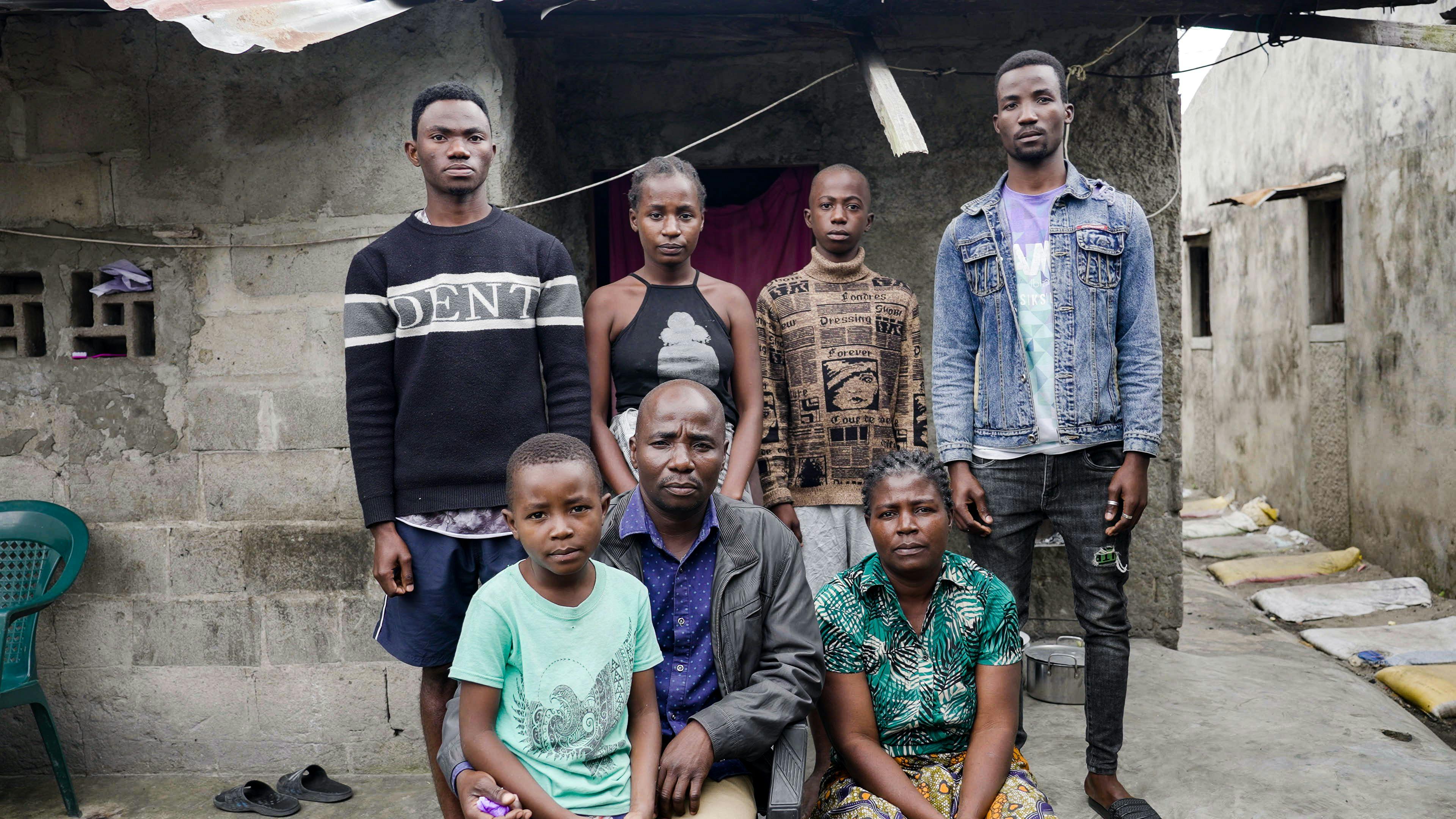
Praia Nova, Beira, Mozambique
Calculated risk: agility in the face of change. Africans resettle for many reasons. Climate stress is rarely the main one. Many return after a disaster, like the Bazilio family who came back to Beira once it had recovered after Cyclone Idai. The family members live in different locations now so they can benefit from greater livelihood opportunities.
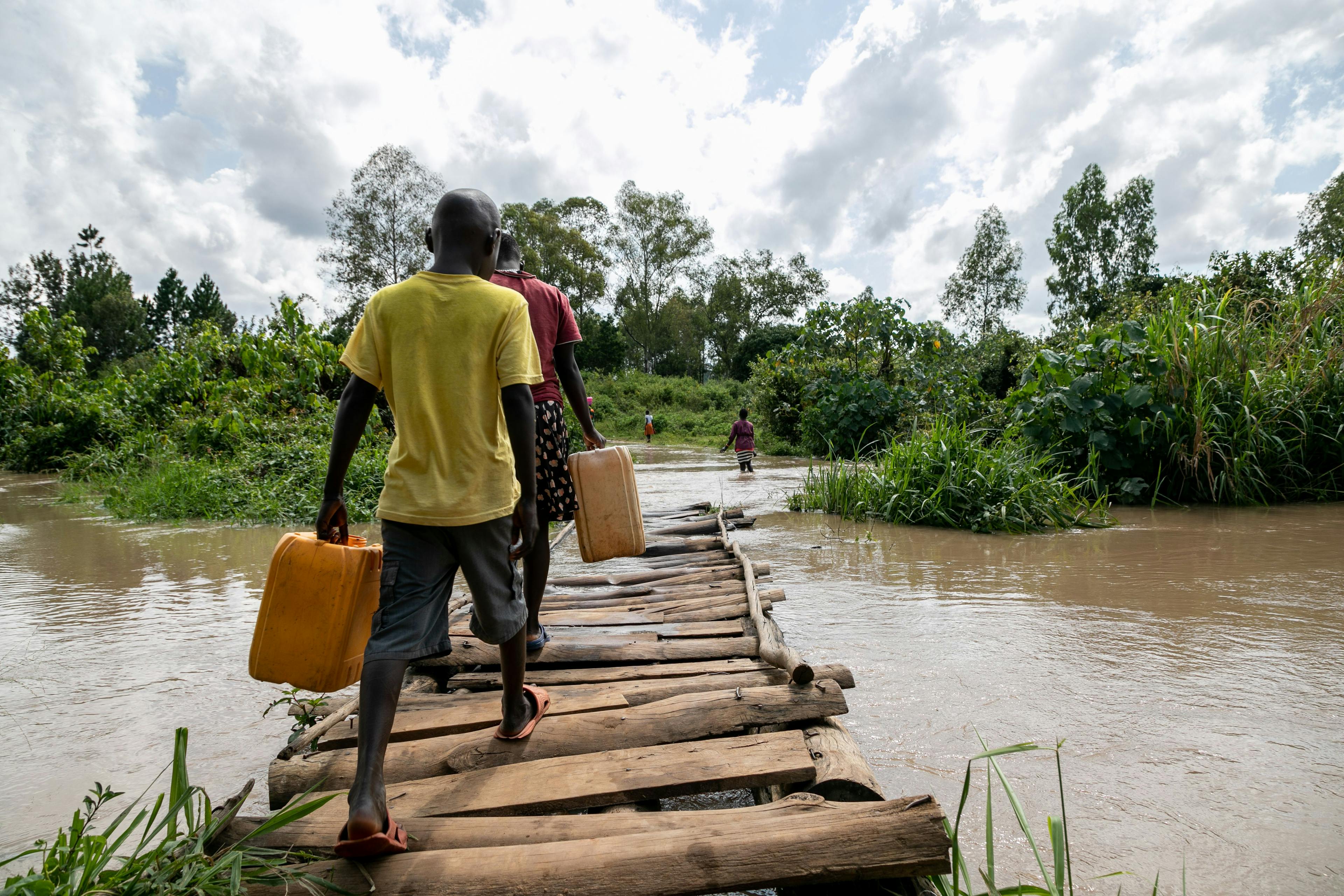
Enyau River, Arua, Uganda
Filling the gap: preparing for growth. A temporary bridge allows foot traffic to cross the Enyau River in Arua after the original bridge was washed away. Fast-growing cities already face service delivery and infrastructure gaps. As African cities grow, they will need to climate-proof infrastructure investments.
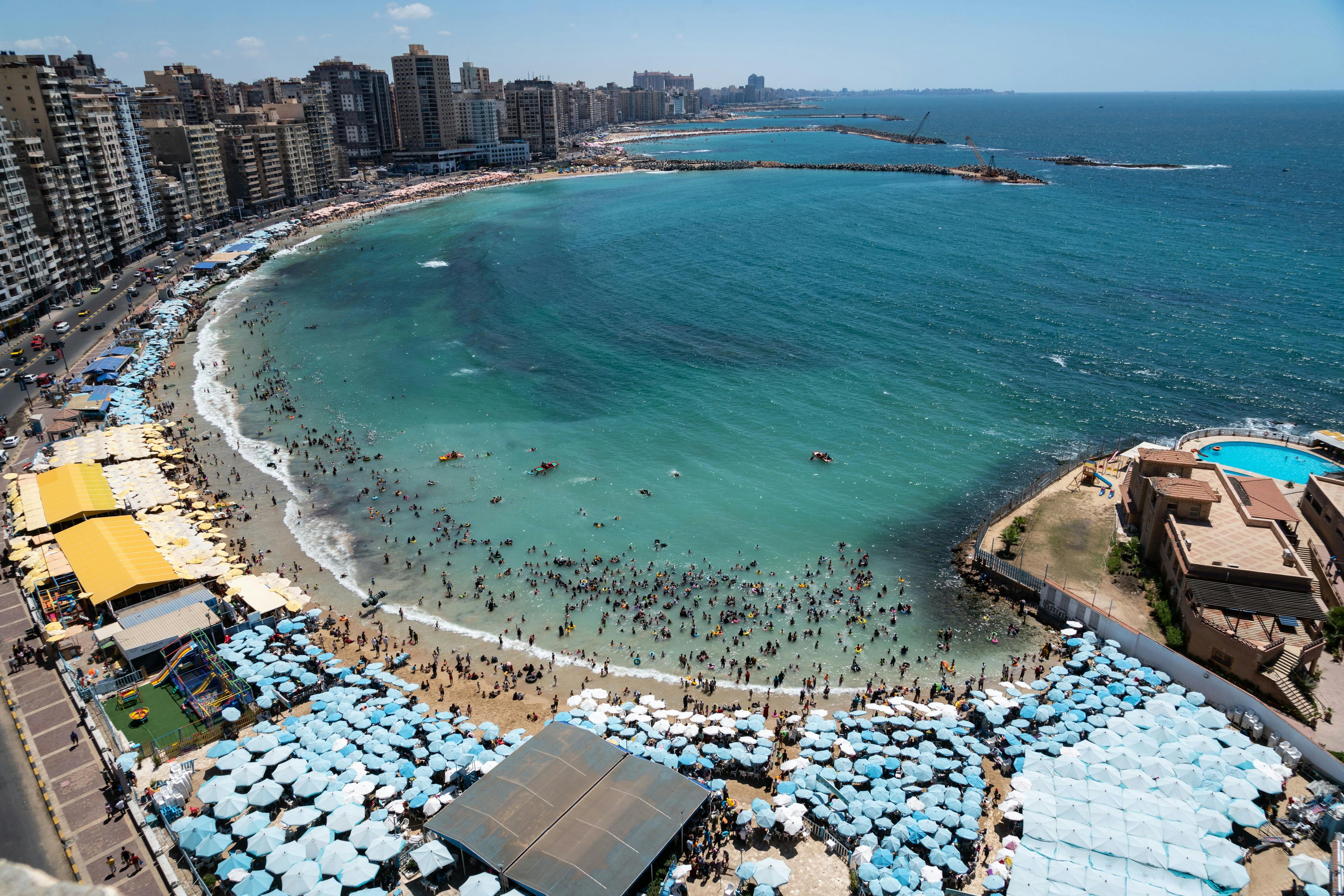
Sidi Bishr Beach, Alexandria, Egypt
Brace for impact: sea-level rise is coming to coastal zones. Africa’s urban edges in coastal cities are exposed to flooding, coastal erosion, and storm surges. Many will need engineered solutions to guard against damage and erosion, like this popular beach which is reinforced with trucked-in sand and concrete storm buffers.
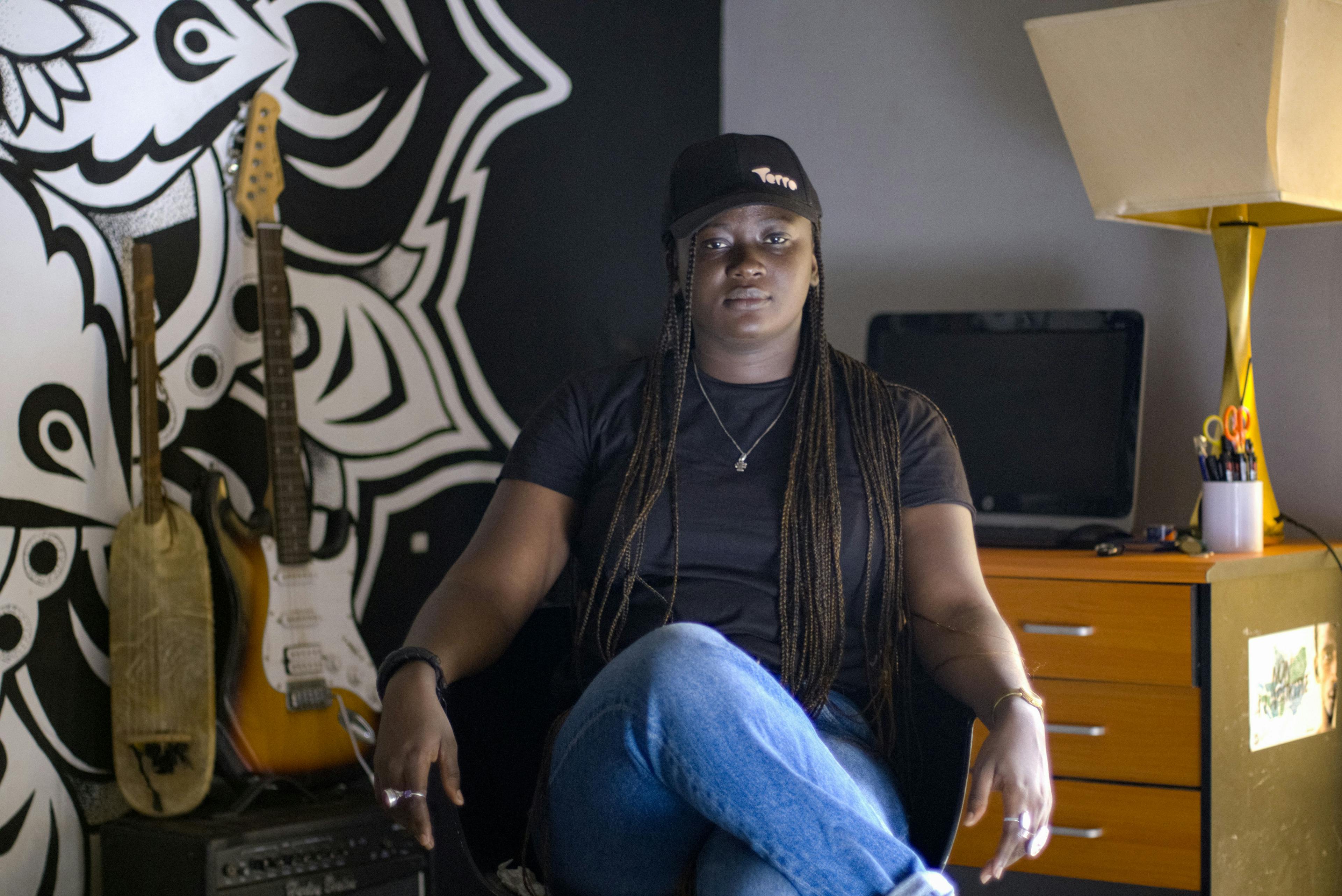
Medina, Dakar, Senegal
Searching for more: the many reasons Africans move. Africans relocate to find a better life, escape hardship, or cope with change. Climate disruption will add to these reasons. Sometimes the move is permanent, often it is temporary. Samira Fall (26) has her sights on ‘vibrant’ Accra, Ghana, to escape the ‘overcrowded, noisy, polluted’ Dakar.
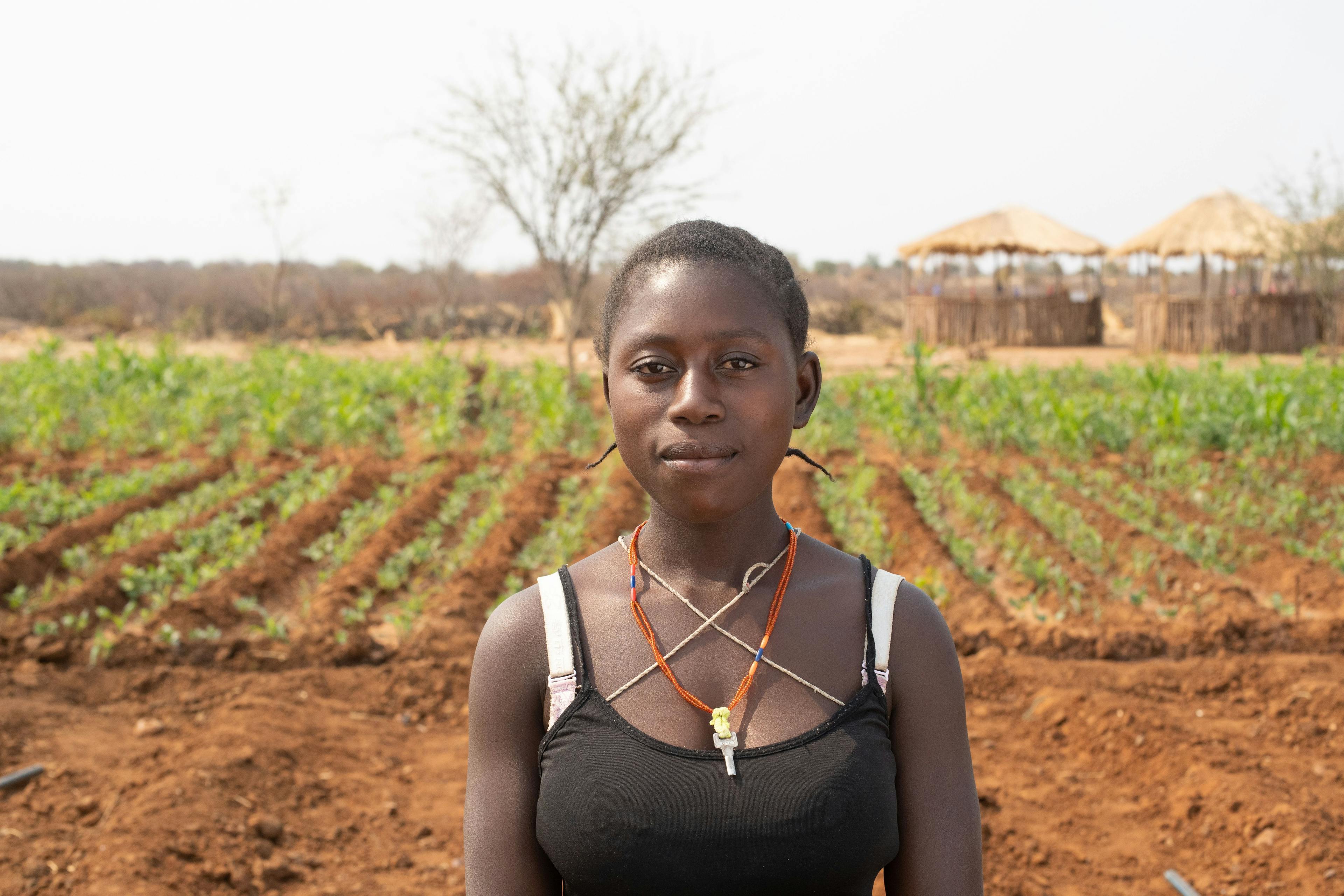
Cahama, Angola
A helping hand: sending wages home. When people move to find work, they often send money home to their families in the countryside. Remittances can keep households afloat, especially in times of crises. Climate mobility could increase this safety net. Filomena Vasco (19) hopes to find work in Namibia so she can send money to support her ailing grandmother.
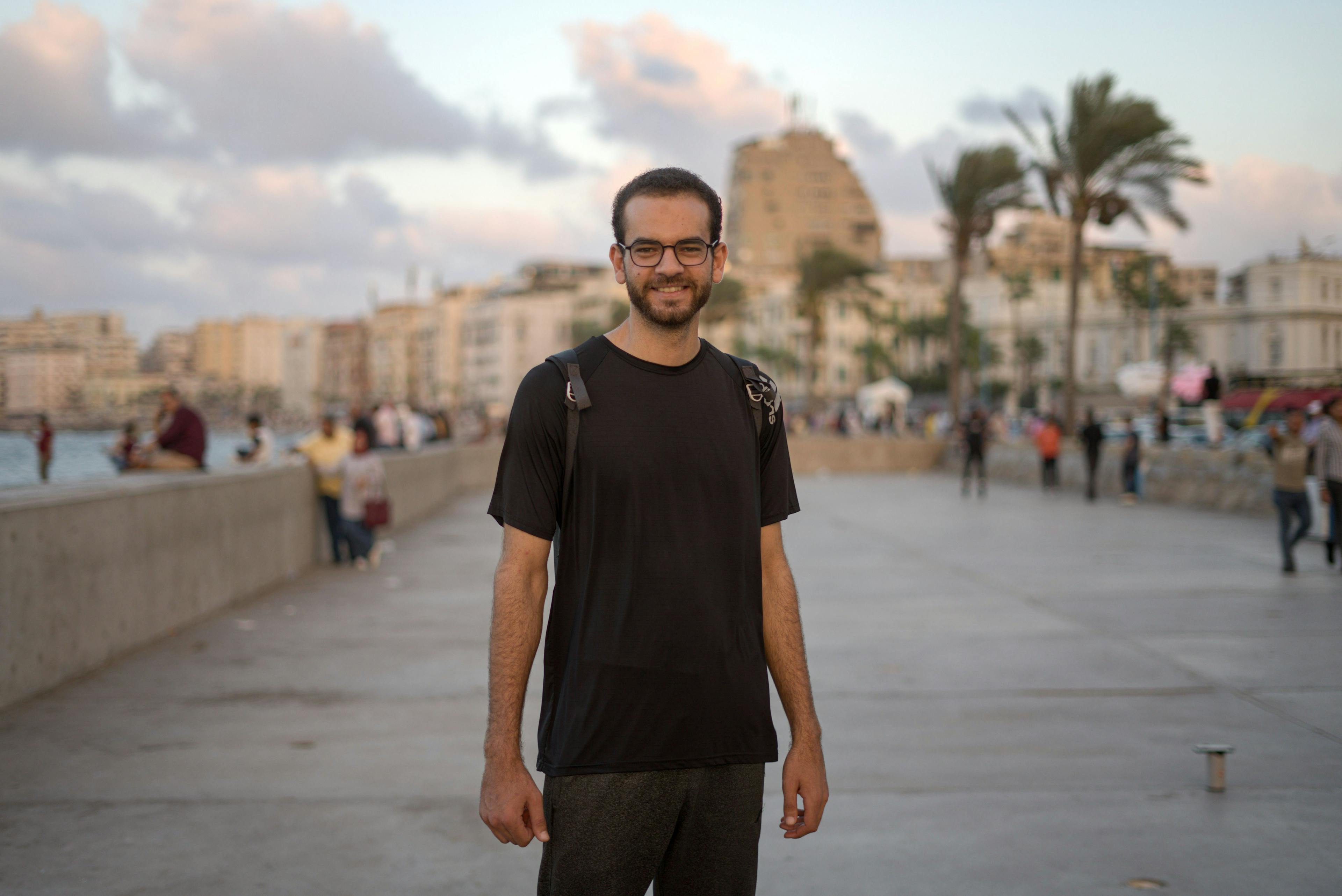
Ibrahimia, Alexandria, Egypt
Most Africans who move prefer to stay close to home. Most people who choose migration in future, in response to climate disruptions, will mostly stay within their home countries. Few will cross into another nation. Engineering student Mohamed Rafat (24) may be amongst the few who leave the continent — he would like to go to Turkey one day.
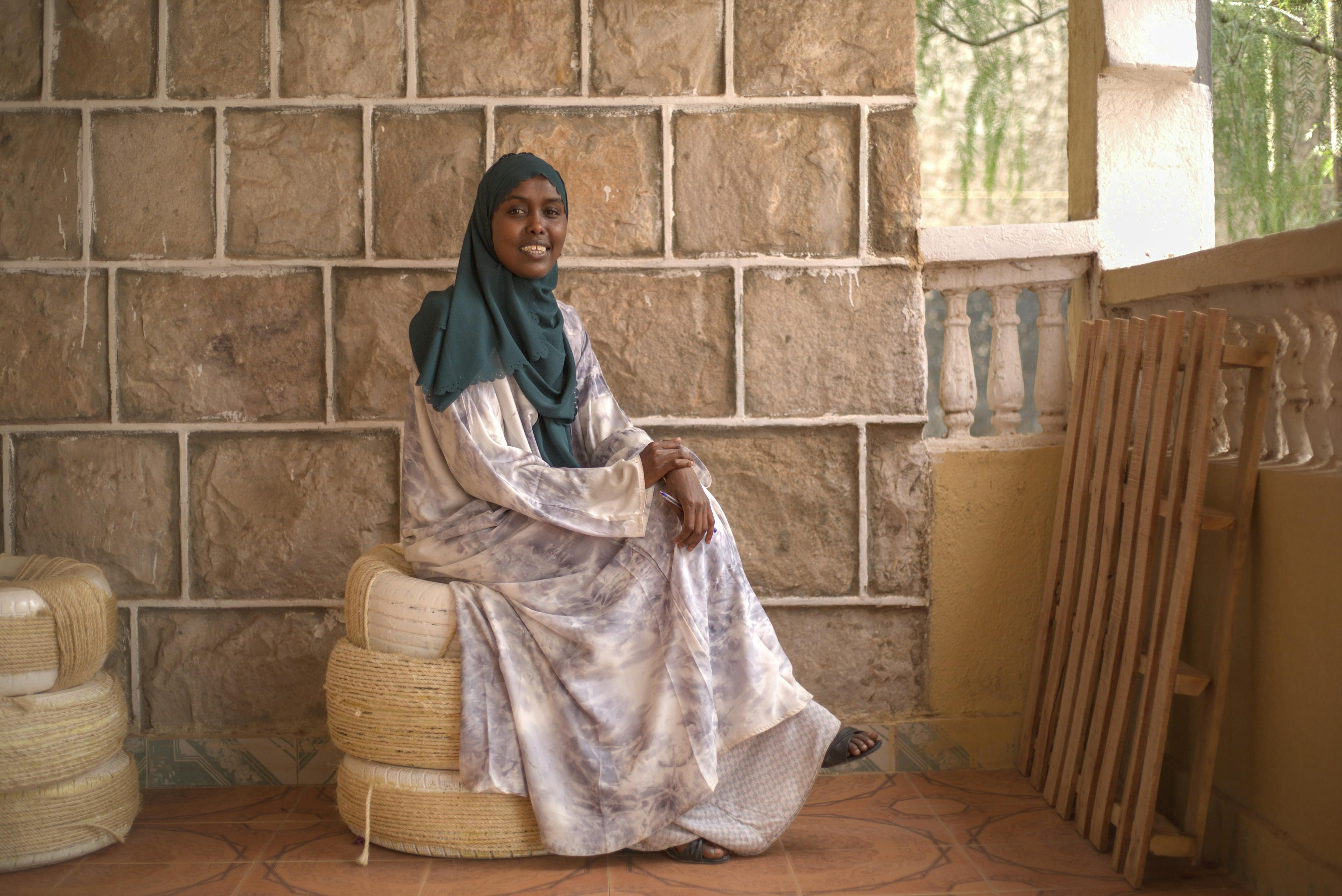
Sheikh, Somalia
Investing in Africa’s youth. Africa’s youth is more educated than previous generations, but also more likely to be unemployed. Nasra Dahir (29) returned after studying in Pakistan and started a day-care facility. Creating economic opportunities will help avoid the youth brain-drain for those who study abroad and choose to settle there.
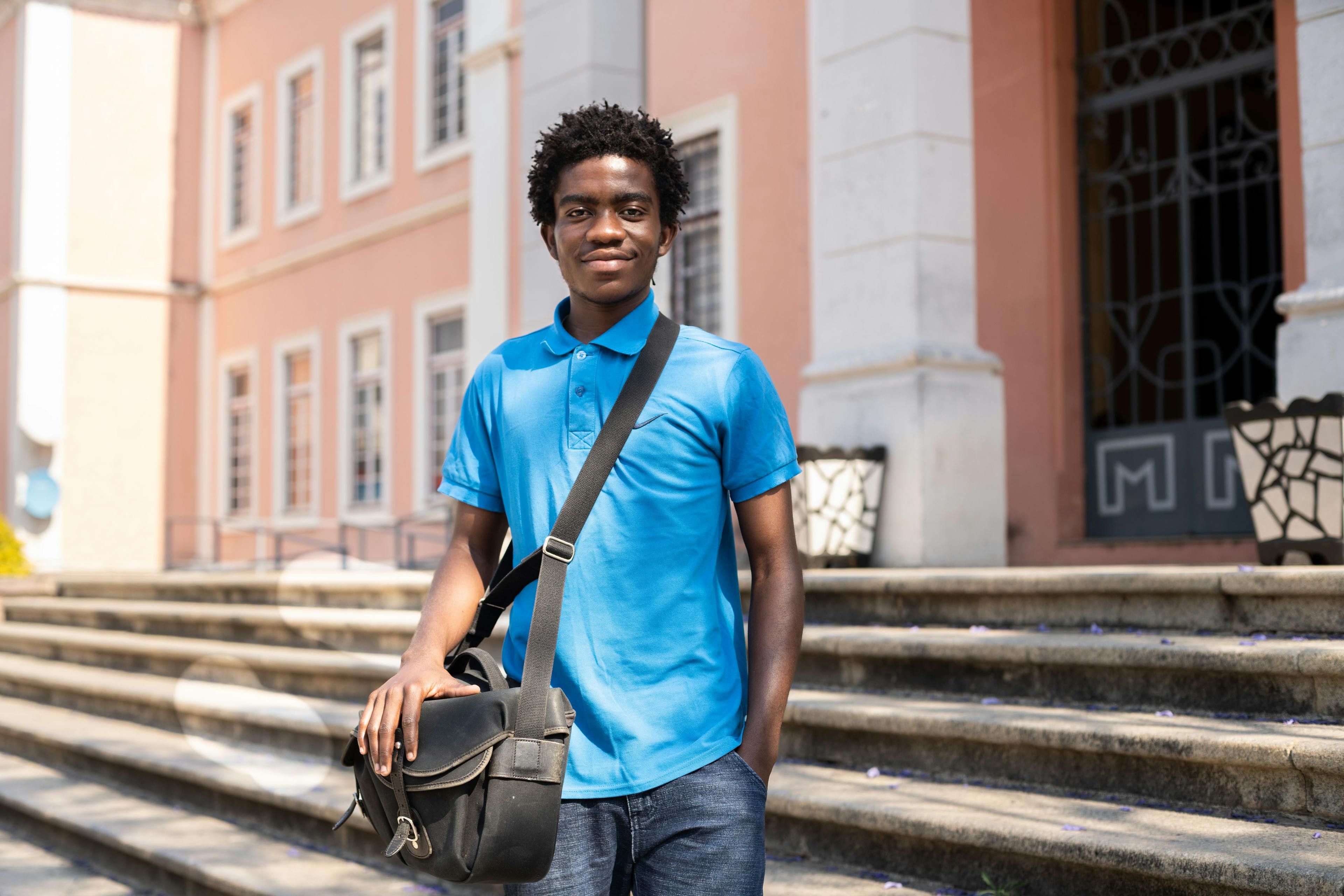
Lubango, Angola
The gender gap: men have more options. Young, more educated men are likelier to migrate, and have greater choice in the matter. Women are less able to choose this option, even if they want to. Carlos Junior (20) could move from rural Angola to attend university here because he has his mother’s financial support.

Cahama, Angola
Women still held back by gender norms. Monica Henriques (19) does not see many prospects in drought-hit Cahama. She has set her sights on Ondjiva to ‘realise her dreams’. Social norms and gender barriers however lead to women being less mobile than men which makes them more vulnerable in the face of climate change.
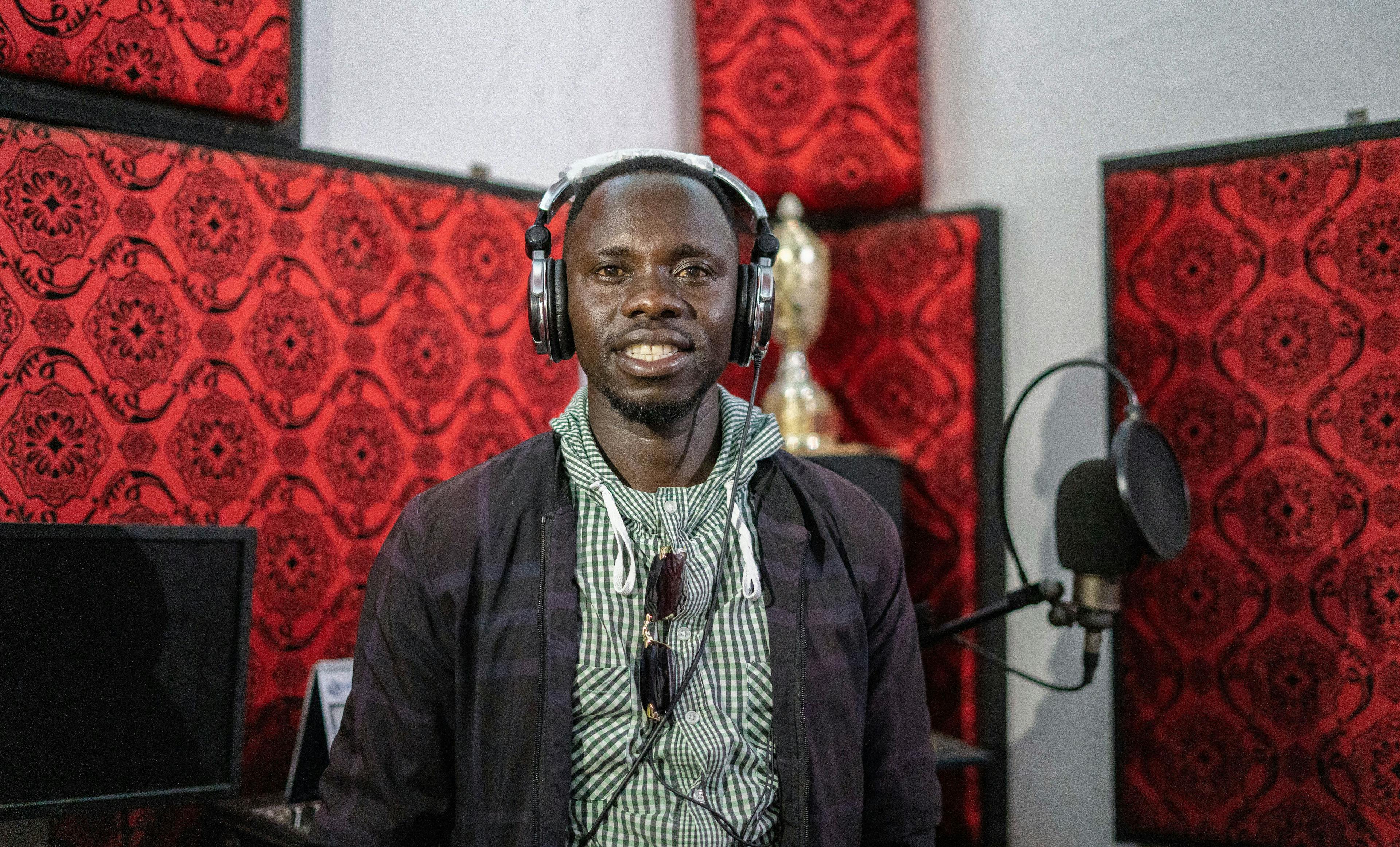
Arua, Uganda
It’s a gamble: cities have their own risks, but it’s worth it. Moving to the city comes with its own climate-related risks — like flooding or heatwaves — but many are willing to pay this price because of the opportunities cities provide. Aspiring gospel singer Franco Anwangkani (26) is paying his way with casual work, while he works towards recording an album.
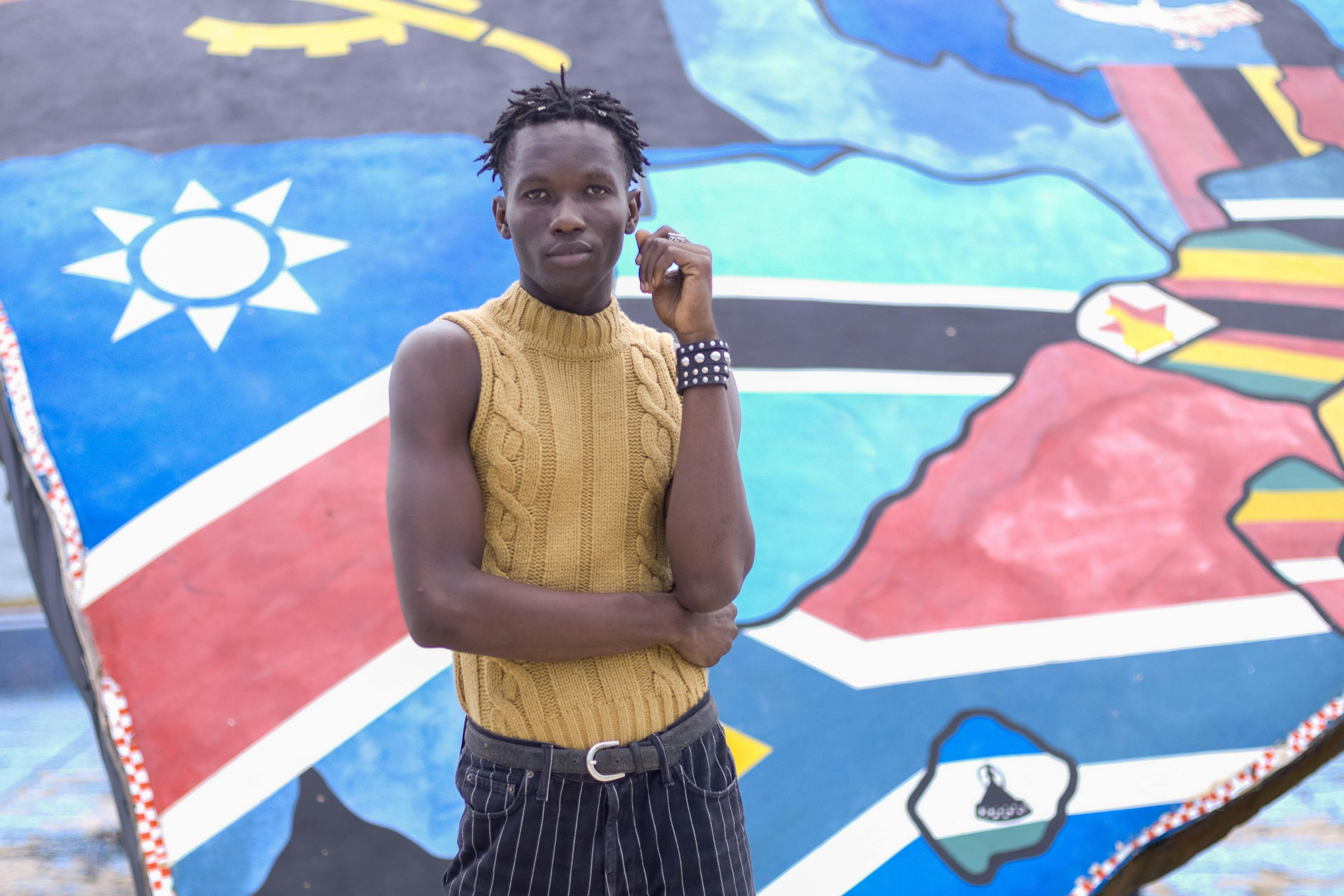
Dakar, Senegal
Finding themselves: younger Africans look beyond the horizon. For younger Africans who feel held back by traditional values and gender roles, the lack of opportunities in rural areas or society at large can be stifling. Like many who feel the pull of cosmopolitan places, fashion model Cheikh Tidiane Sene (25) dreams of a career in Europe, Turkey, or South Africa.
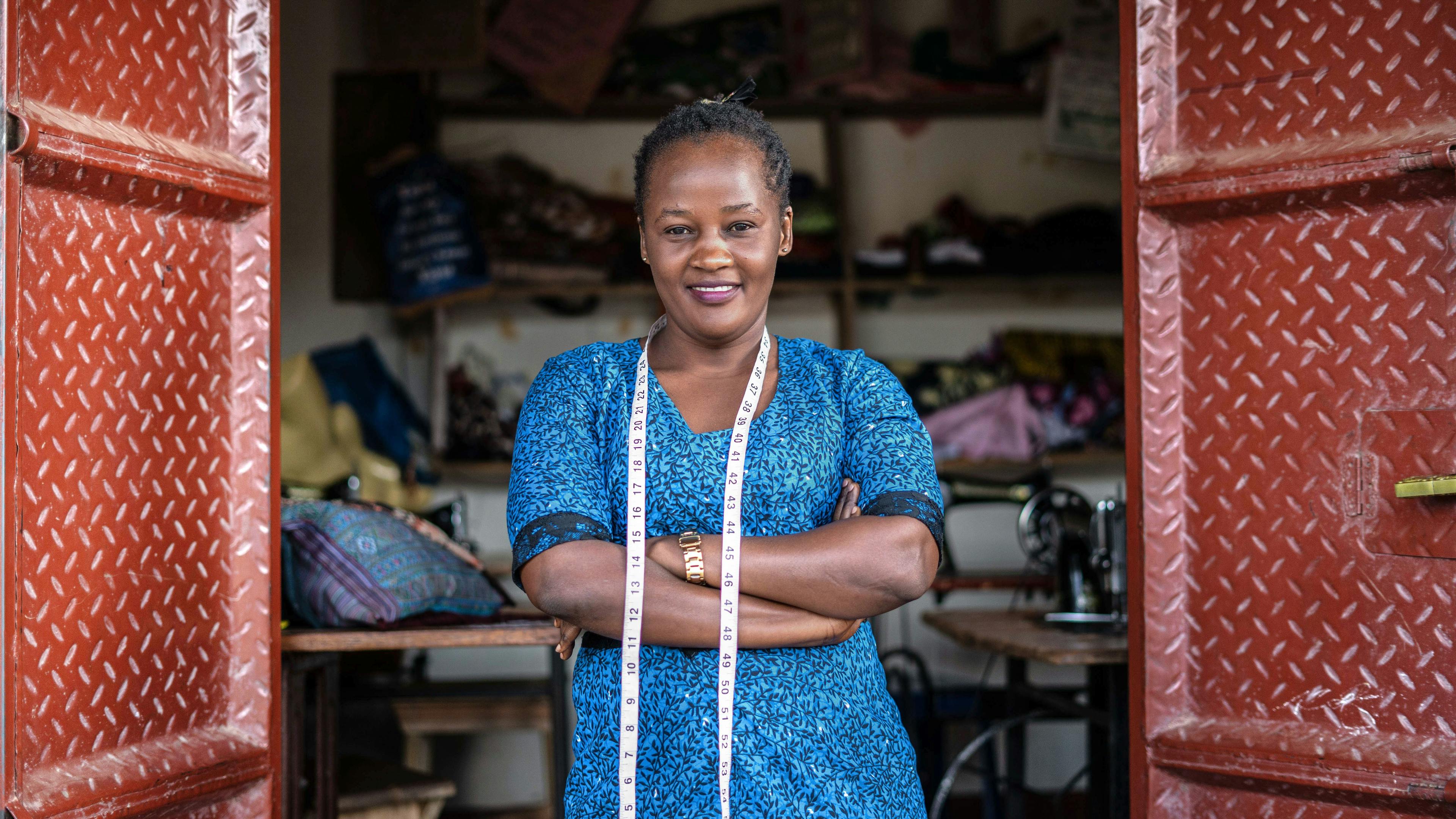
Ociba, Arua, Uganda
Pot of gold: women, informal trading, and climate risk. Women are the lifeblood of the informal economy, but are vulnerable to climate shocks, sole breadwinners particularly so. Adrili Jilda (34), a refugee from South Sudan, runs a tailoring business which provides for her and her children. Diaspora networks like hers are a source of mutual support.
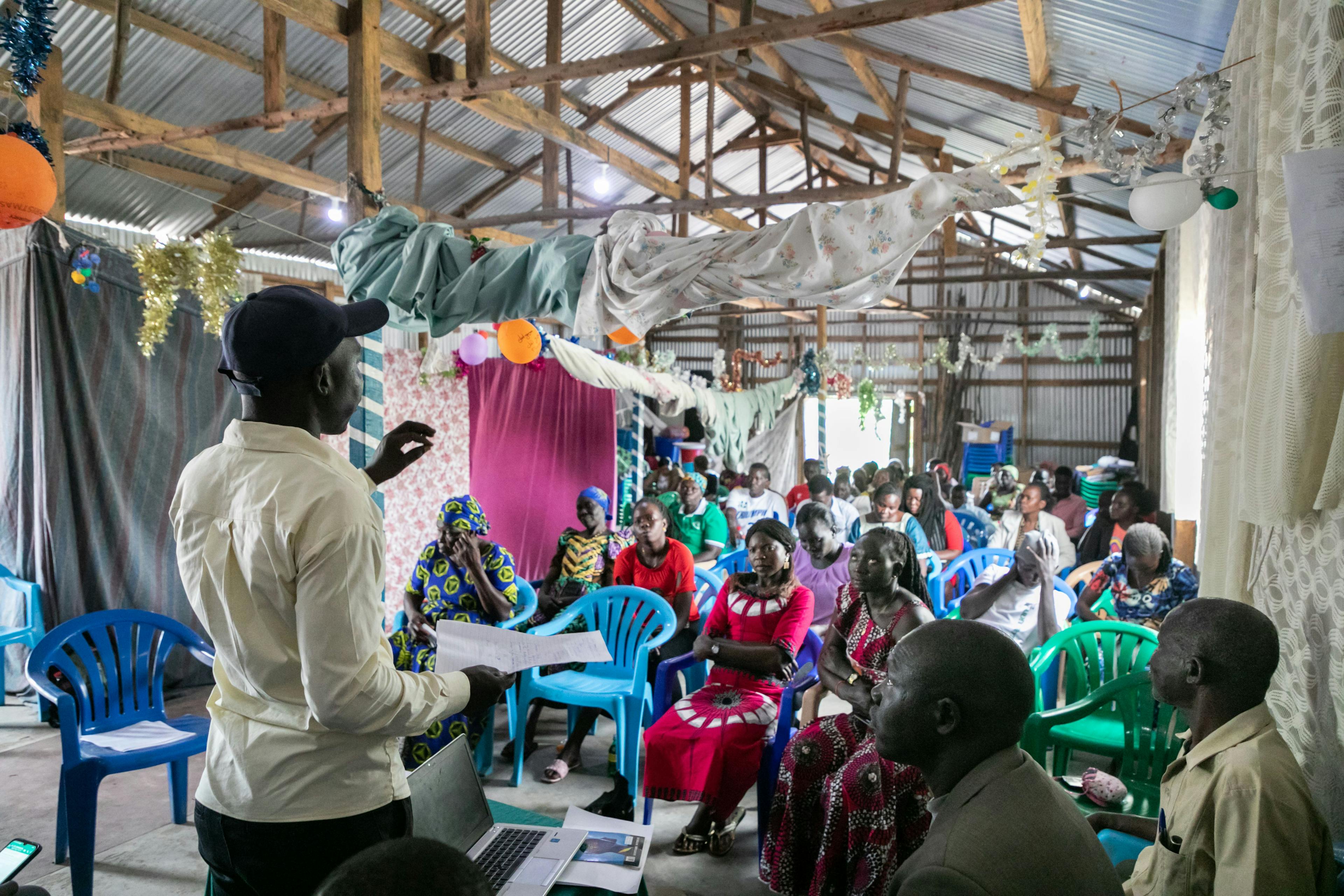
Anafiyo, Arua, Uganda
Places of safety: just across the border. Refugees and internally displaced persons (IDPs) often concentrate along national borders, as people settle close to home, or as the state tries to contain them. This community from South Sudan settled here after fleeing civil war. Climate displacement could swell their ranks.
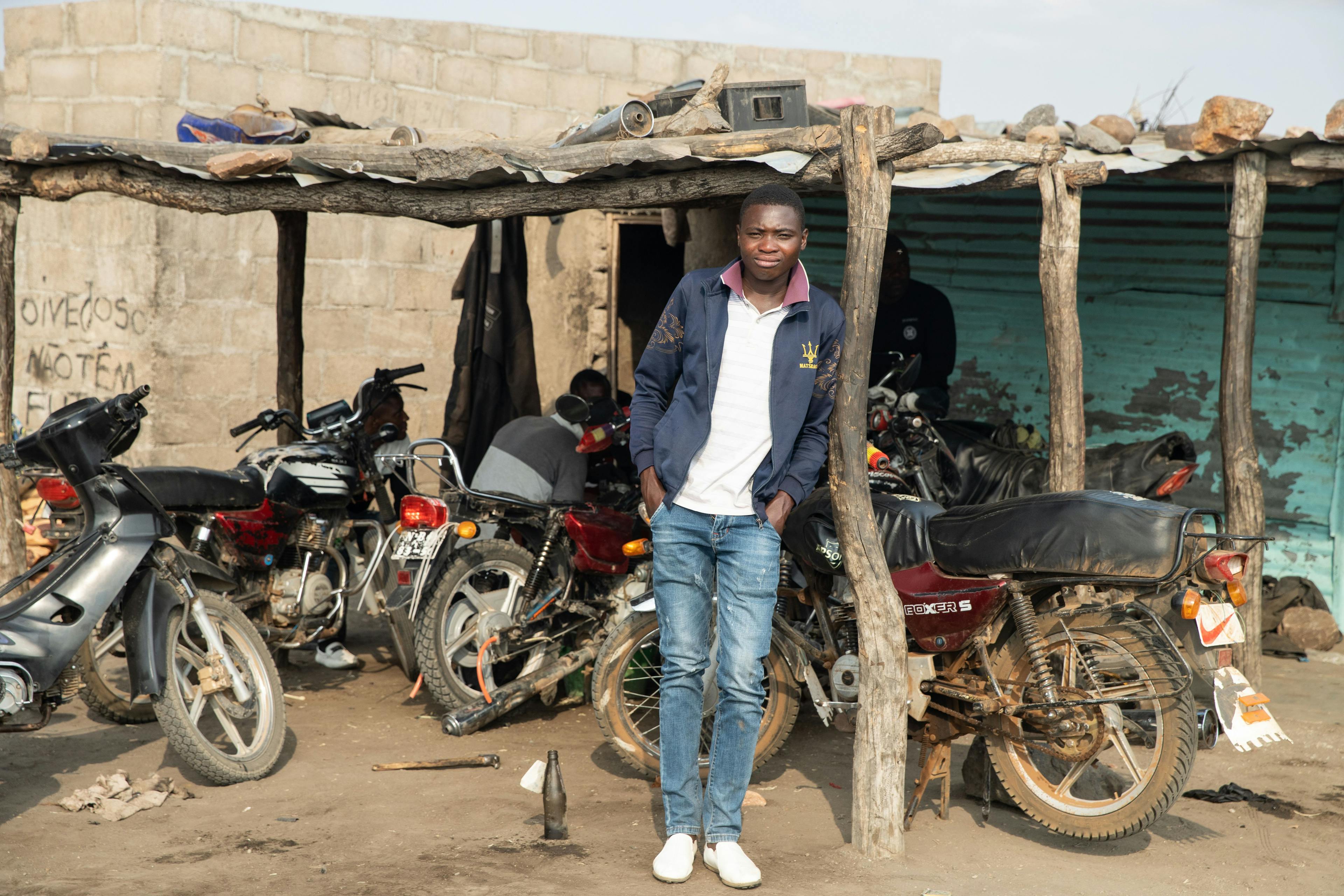
Bairro da Tunda, Chiange, Angola
Living in hope, despite climate woes. Even though Africans are already living through the first waves of climate shocks and stressors, they are optimistic and expect their lives will improve. This hope can be a source of resilience. Bernardo Kaupiquitua (19) hopes for more, working as a mechanic while he finds his feet here.
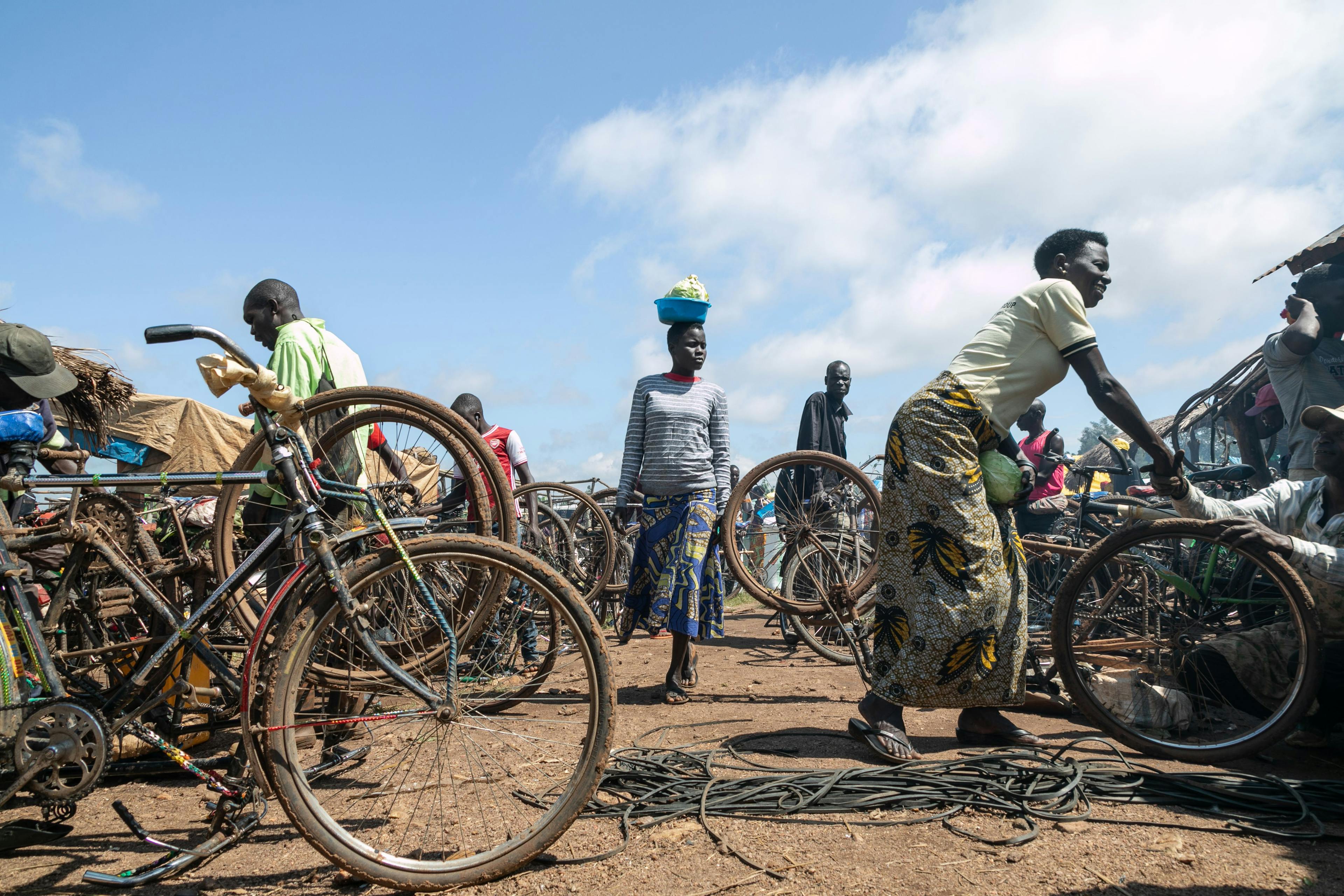
Kampala Market, near Ugandan border with the DRC
‘The Africa we want’: a shared vision. This bicycle repair shop at a key regional produce market shows how a local economy can thrive by embracing trade and mobility. By planning for climate mobility as a way of fostering resilient adaptation journeys, African states can advance the promise of regional integration and prosperity.
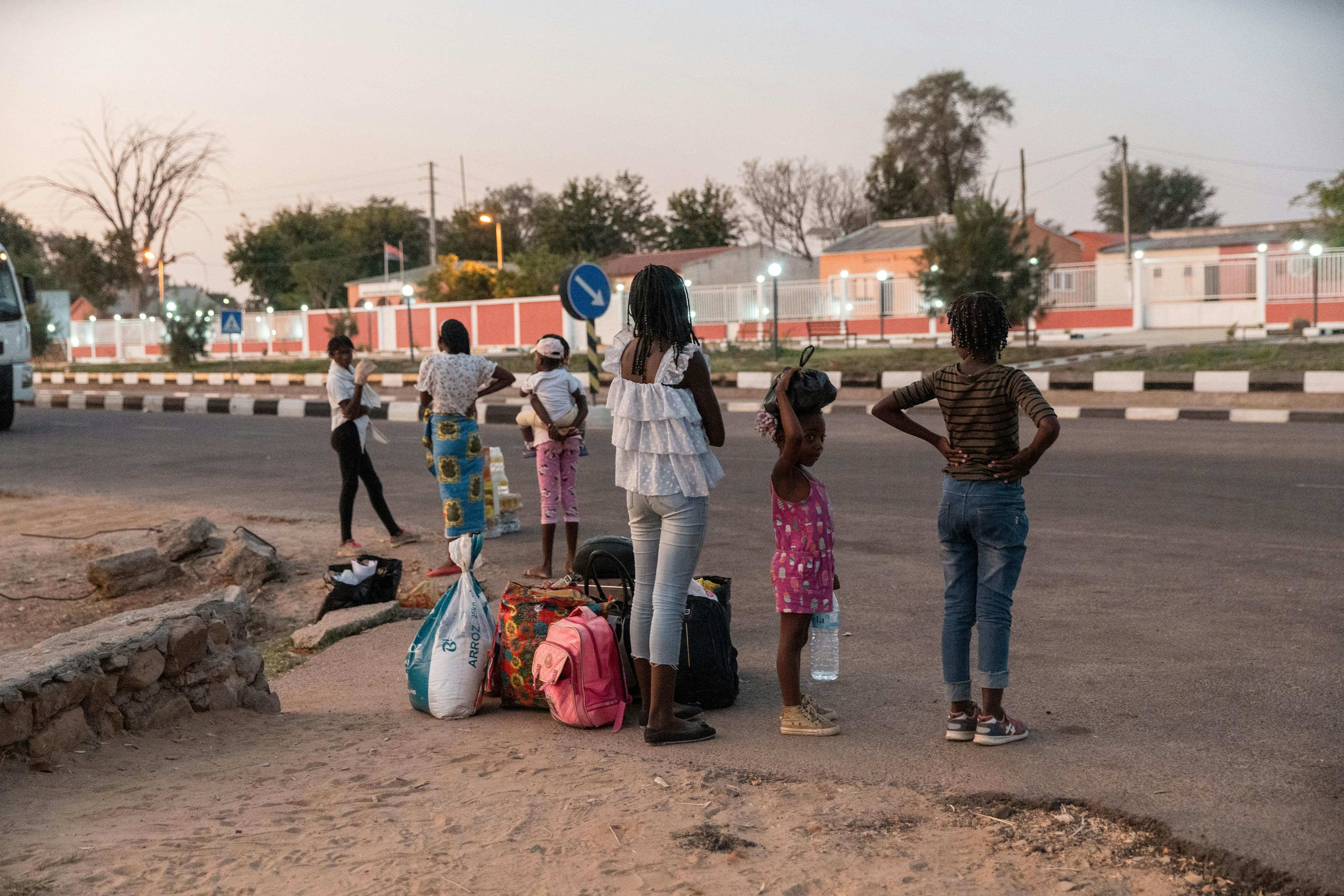
Cahama, Angola
Knowledge is power: climate awareness builds agency. The more people know about the climate crisis and adaptation options, the more they are empowered to cope with and mitigate disruptions caused by extreme weather events. Climate awareness is generally lower among women, but are more likely to act on climate information and early warnings.
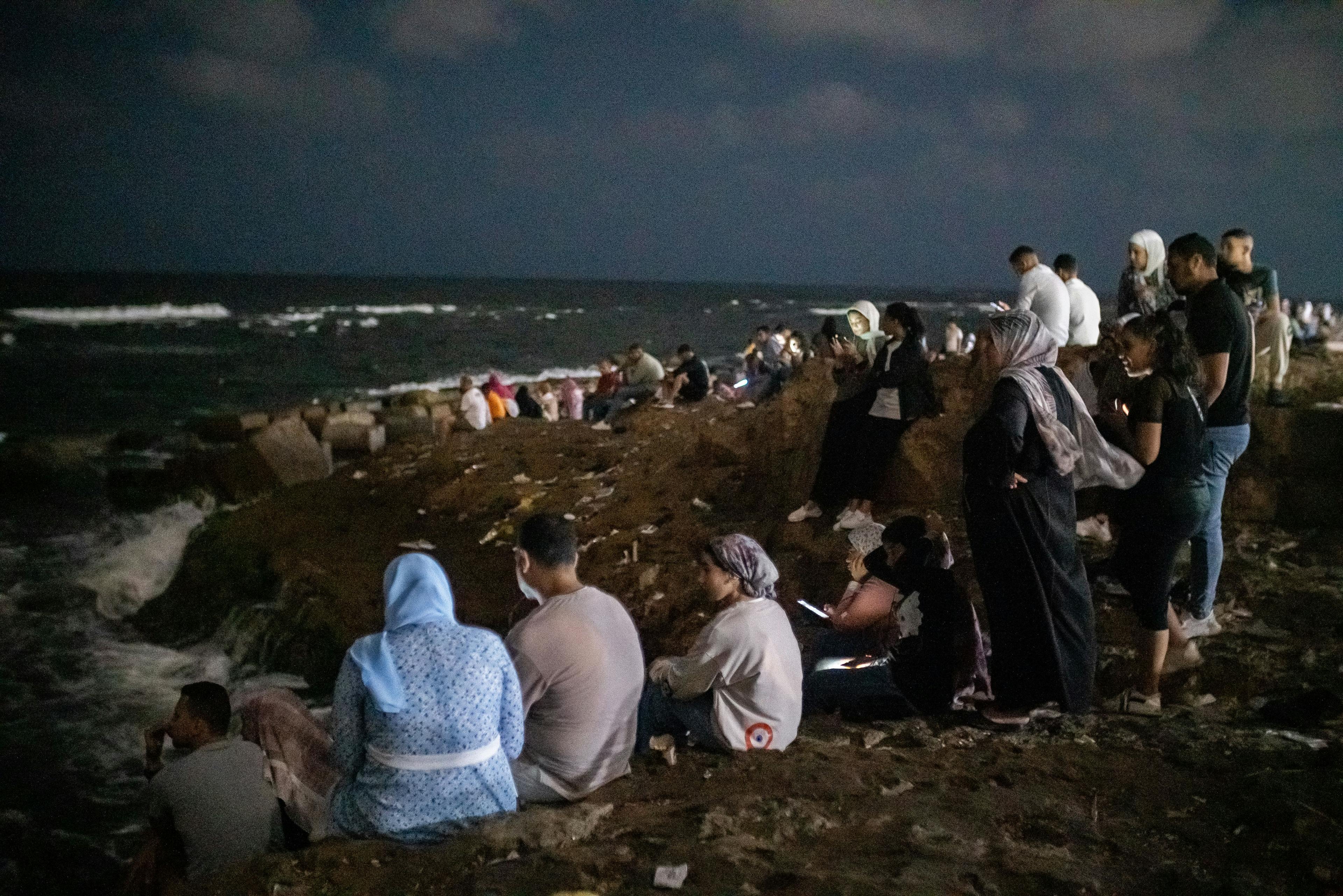
Bir Masoud, Alexandria, Egypt
Rising tides: a waiting game in coastal cities. The view of the Mediterranean Sea from this popular beach regularly draws crowds. Coastal cities will continue to grow despite climate impacts, even though up to 2.5 million people are predicted to leave risk-prone coastal areas for safer ground by mid-century.
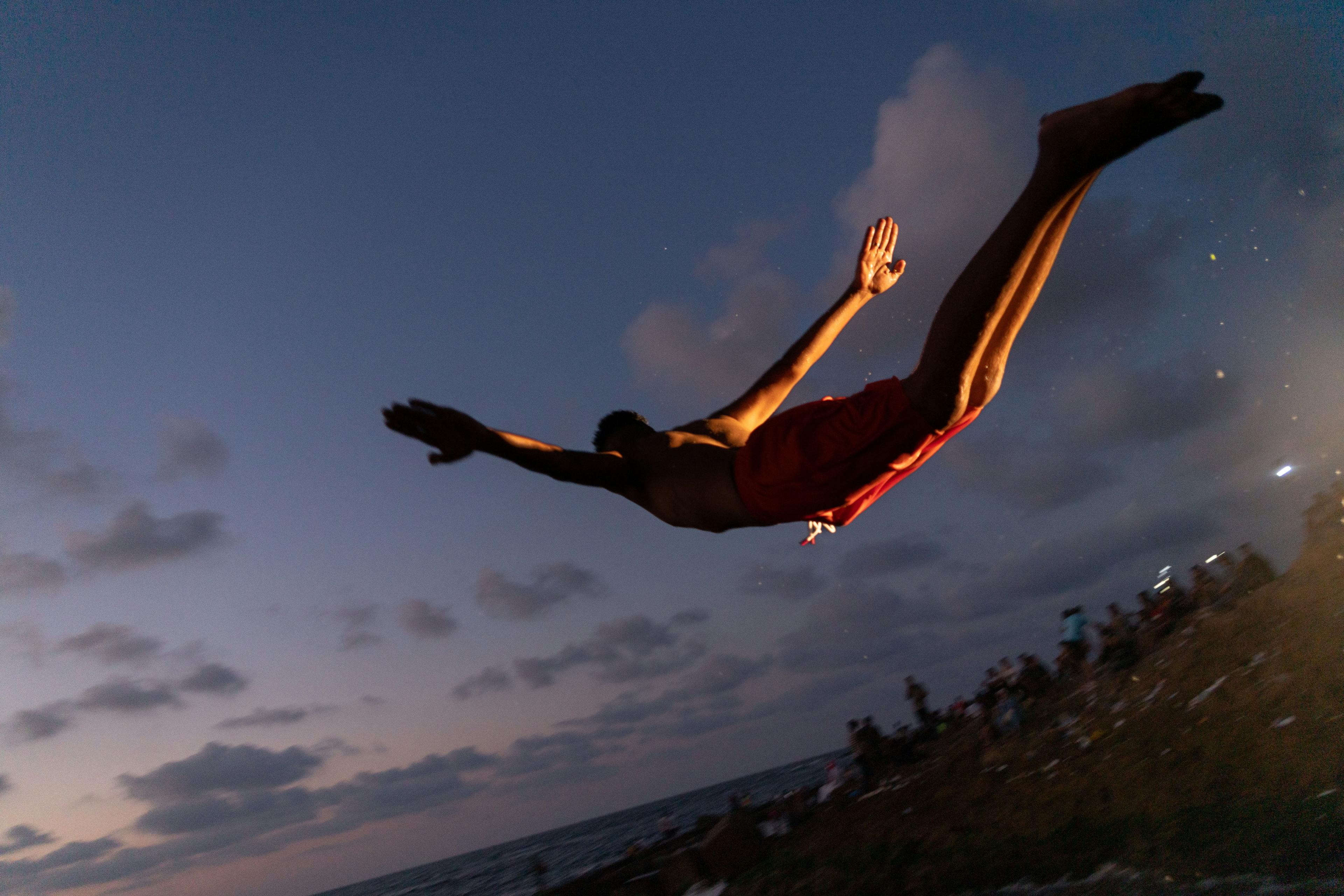
Bir Masoud, Alexandria, Egypt
Taking the leap: Africa’s eager youth. Mo’men Ashour (23) dreams of finding a job and moving to Alexandria. Many young Africans have a wanderlust, fuelled by far-off opportunities seen on digital media. Young men who are educated and free of family commitments are typically the first to feel the pull of new horizons. For them, mobility is ‘normal’.
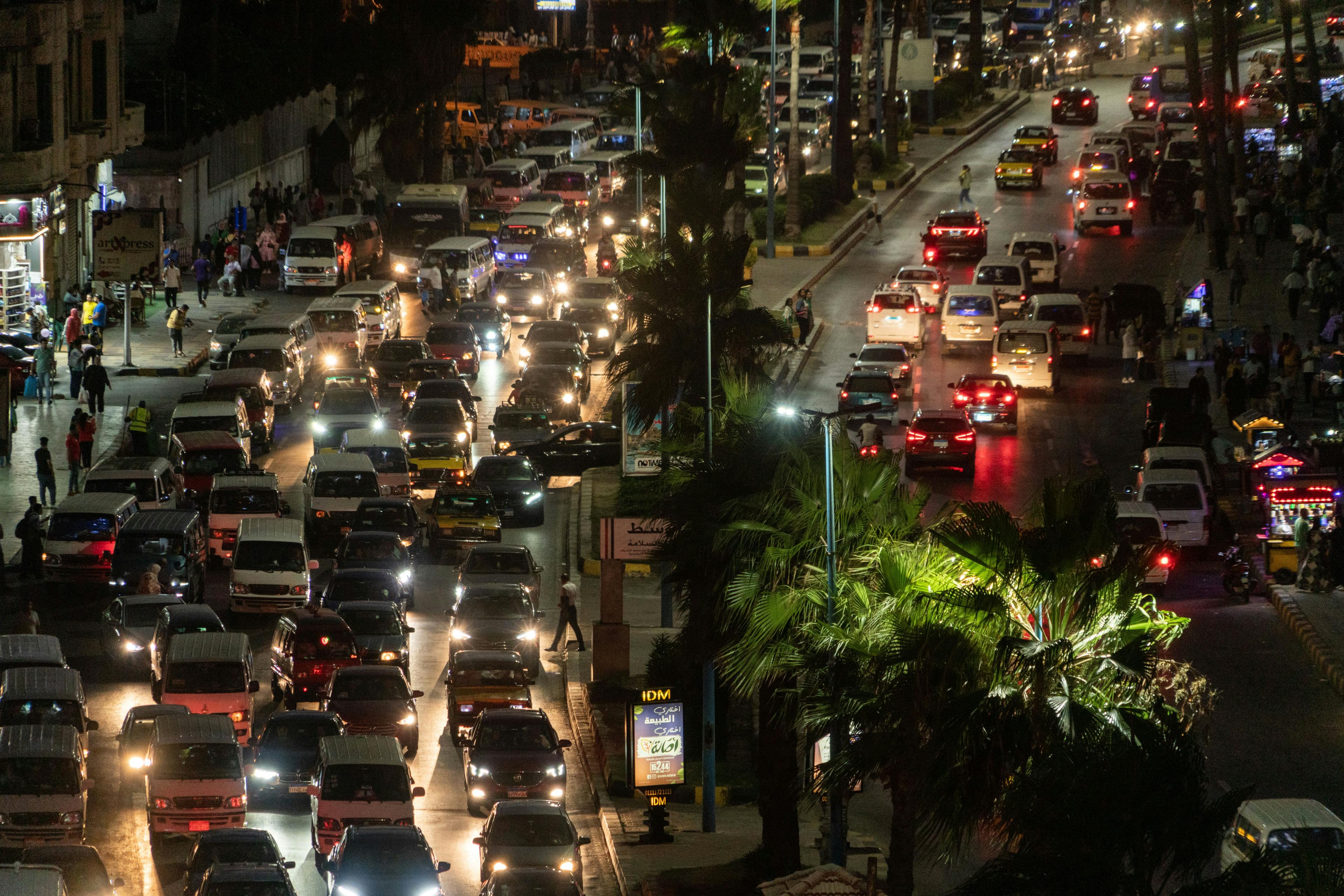
Mahatet Al-Raml, Alexandria, Egypt
Building for solidarity. Alexandria is developing some of its roads to address congestion challenges. By anticipating future arrivals and population shifts, cities can take targeted actions to reduce climate risk exposure and foster social cohesion in rapidly changing communities.